What a No-Fly Zone Over Ukraine Would Mean for the West

© Gleb Garanich/Reuters


© Gleb Garanich/Reuters
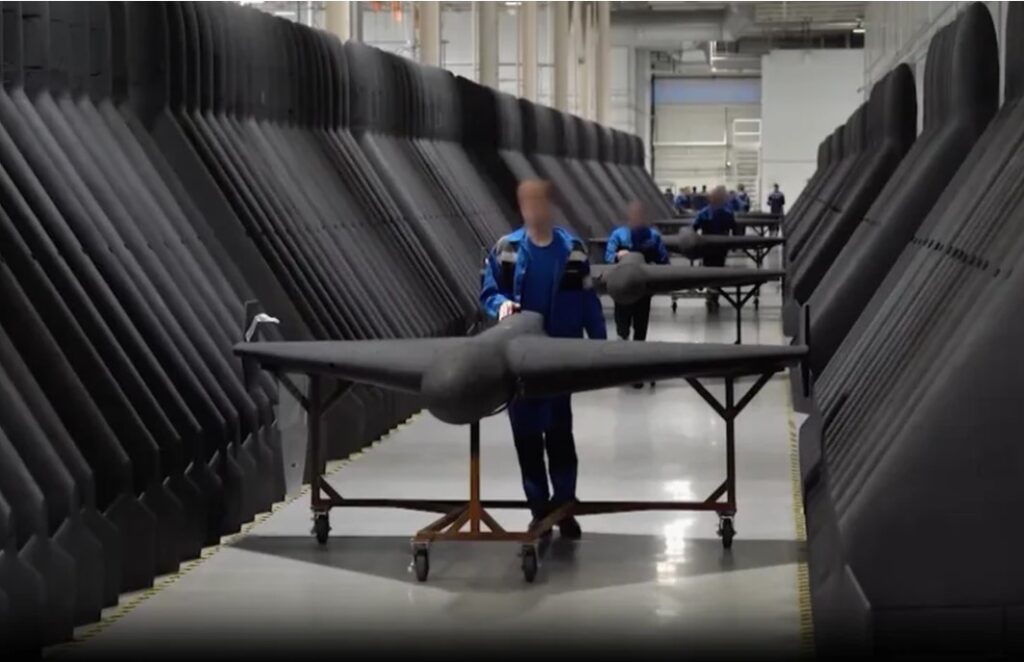

Ukraine says it is ready to train NATO partners in downing Russian drones after recent incursions into Poland and Romania. Kyiv stresses that Europe must urgently learn from Ukraine’s battlefield-tested drone warfare or risk falling behind Moscow.
Russian drones have repeatedly violated NATO airspace in recent weeks. Poland shot down at least three Geran drones with Russian Cyrillic markings on 7 September, while Romania confirmed a drone incursion near the village of Chilia Veche during a Russian strike on the Danube.
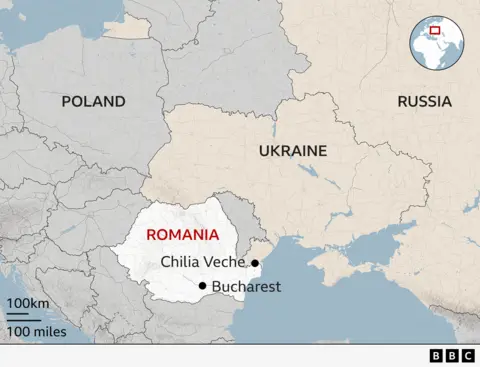
“These are not accidents,” Ukrainian President Volodymyr Zelensky warned. “It is an obvious expansion of Russia’s war.”
Romania summoned Moscow’s ambassador, while Polish Prime Minister Donald Tusk ordered ground-based air defenses to the highest alert. NATO allies scrambled F-16s, F-35s, and AWACS surveillance planes in response.
Yurii Ihnat, spokesperson for Ukraine’s Air Force Command, said Kyiv is ready to share hard-won expertise in shooting down Russian drones.
“The type of missiles used to shoot them down is their business. But they don’t have as much experience as Ukraine,” Ihnat said.
He proposed hosting training in Lviv or Kraków, noting that Polish and Romanian jets have struggled to intercept the “Gerans” — Iranian-designed Shahed kamikaze drones, which he called “not an easy target, especially for fighter aircraft.”
“For over 40 minutes, two fighter jets couldn’t do anything. They tried, but lost a lot of time,” Ihnat said, recalling a recent Romanian encounter.
Over 3.5 years of the all-out war, Ukraine has built a unique drone warfare ecosystem — a blend of military innovation, civilian expertise, and private-sector production. From garage workshops to defense tech startups, more than 200 UAV types have been developed, with Ukraine now streamlining to 20–30 effective models.
Operations like Spiderweb, where 117 drones struck four Russian bases, destroying dozens of bombers, illustrate both the precision and mass Ukraine brings to the battlefield. This “War DevOps” culture—borrowing from software development—lets Ukraine redesign, test, and deploy new drone variants in weeks, sometimes days, far faster than NATO procurement cycles.
In these consequences, ignoring Ukraine’s experience might be a strategic error. Drone incursions into Poland and Romania show that Europe’s air defense remains vulnerable. Kyiv’s bottom-up innovation culture—where frontline pilots, instructors, and civilian volunteers constantly refine tactics—offers a model NATO allies should adopt.
Ukraine is already in talks with Denmark, Norway, and Germany to share knowledge, and Zelenskyy has openly proposed a “mega-deal” with the US to transfer Ukraine’s advanced drones in exchange for American weapons.
During one of his visits to the White House, Ukrainian leader Volodymyr Zelenskyy pitched President Donald Trump on a $50 billion deal to supply and co-produce drones with the US. Zelenskyy told journalists that the program, which hasn’t been finalized, would deliver 10 million unmanned systems annually over five years.


Polish authorities have identified and detained two young people who operated a drone over government buildings in Warsaw on 15 September, according to spokesman for Poland’s special services coordinator Jacek Dobrzyński.
The detained individuals are a 21-year-old Ukrainian citizen and a 17-year-old Belarusian woman, TVN24 reports. Both were apprehended by the State Protection Service after the drone was spotted flying over Polish government buildings and the Belvedere Palace.
“This is a young Belarusian woman and her twenty-something colleague from Ukraine. These individuals were directly detained by State Protection Service officers. Police were notified, who also arrived at the scene and took these persons into custody,” Dobrzyński said at a press conference on 16 September.
The spokesman clarified that both individuals are in Poland legally – the Belarusian woman for several days, and the Ukrainian for eight years, according to RMF24.
Polish special services have ruled out espionage as a motive. Dobrzyński dismissed speculation about intelligence activities, stating: “We are refuting rumors that this was some massive spy operation. At this stage, no one can definitively determine this.”
The investigation points toward a violation of aviation law rather than criminal espionage. “These are young people, perhaps this resulted from carelessness, perhaps from ignorance, perhaps from the fact that they wanted to make some film here over Łazienki (Royal). Especially since they were in Łazienki Park and launched the drone from there,” Dobrzyński explained.
Warsaw District Prosecutor’s Office spokesman Piotr Antoni Skiba confirmed that evidence and circumstances indicate “violation of aviation law regulations, not the commission of espionage crime.” The prosecutor’s office expects to receive case materials on Wednesday.
Police secured the drone used by the detained individuals and are conducting proceedings under Article 212 of the Aviation Law. The article stipulates that anyone who violates air traffic regulations while operating an aircraft faces up to five years imprisonment.
The incident occurred on 15 September evening when Prime Minister Donald Tusk announced that the State Protection Service had neutralized a drone operating over government buildings and the Belvedere Palace in Warsaw. Initially, Tusk reported the detention of two Belarusian citizens, but later information revealed one detainee was Ukrainian.
Polish law prohibits drone flights over government buildings and critical infrastructure. Special markings and signs indicate no-drone zones, and operators must use the DroneTower application to register flights and check permitted areas through the DroneMap system provided by the Polish Air Navigation Services Agency.
The detained individuals are currently providing testimony at a police station, while the Internal Security Agency monitors the investigation to determine their motives for operating the drone in the restricted zone.
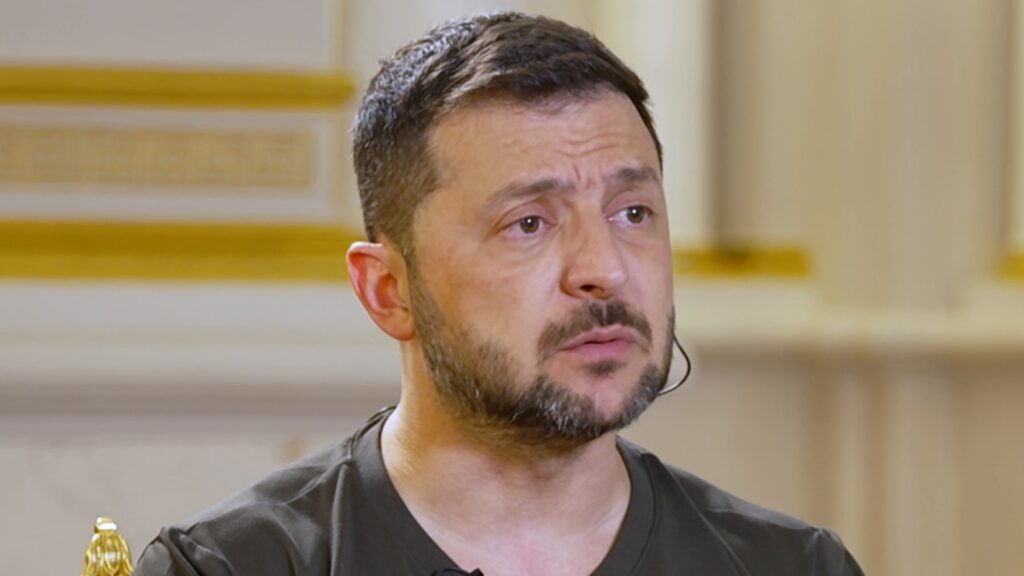

Sky News reports that Ukrainian President Volodymyr Zelenskyy warned Russia’s leader Vladimir Putin is trying to trick US President Donald Trump in order to escape sanctions, while NATO continues to face Russian provocations.
Speaking to Sky News at the Presidential Palace in Kyiv, Zelenskyy said the Russian leader is exploiting diplomacy with Trump to buy time in order to “be better prepared.” He argued that Putin’s aim is not peace, but to stop the United States from imposing further penalties. According to him,
“He’s doing everything he can to avoid sanctions, to prevent US and Trump from putting sanctions on him, and if you keep postponing applying sanctions any further, then the Russians will be better prepared.”
Zelenskyy warned that Putin seeks to escape isolation, describing the Alaska summit last month as a tool for the Kremlin to gain international visibility. He said,
“He should have received a setback in this war and stop, but instead, he received de-isolation. He got the photos with President Trump. He received public dialogue, and I think this opens the doors for Putin into some other summits and formats.”
The Ukrainian president stressed that Moscow will not be persuaded by arguments or negotiations. Instead, he said Russia’s leader responds only to strength.
“He understands force. That’s his language. That is the language he understands,” Zelenskyy told Sky News, calling on Europe and the United States to act quicker.
He added that while sanctions are in place, they are not enough to stop Russia’s war.
Zelenskyy emphasized the importance of not giving Putin “space,” warning that every delay in sanctions strengthens Moscow’s position. He argued that Western hesitation risks leaving Russia better prepared for further aggression.
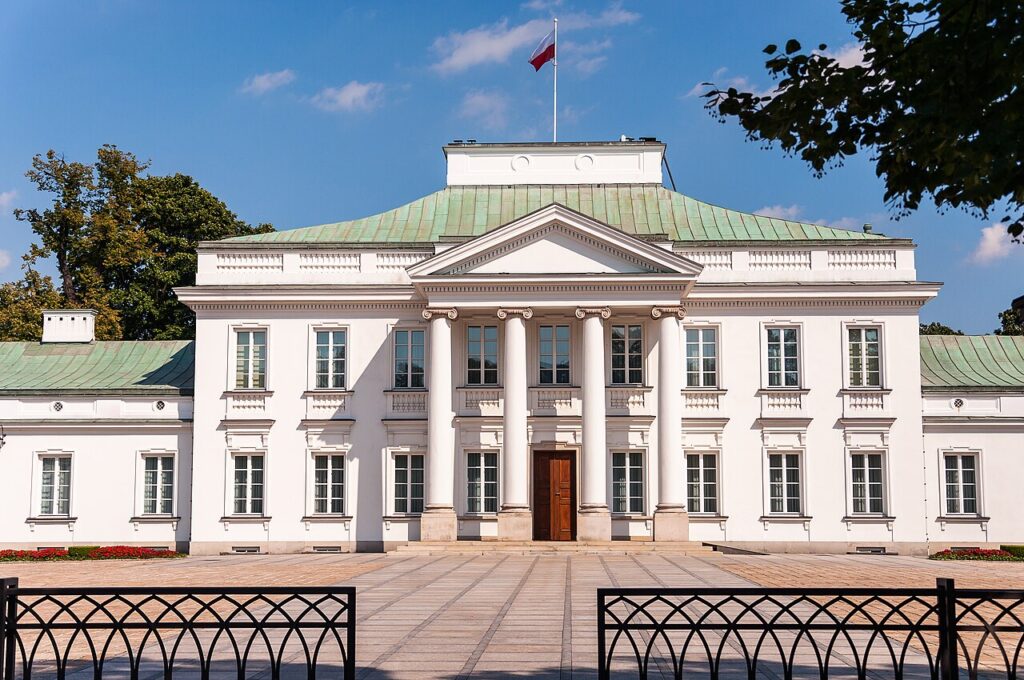

Polish Prime Minister Donald Tusk said on 15 September that the State Protection Service neutralized a drone flying above Warsaw’s government quarter. The incident ended with the detention of two Belarusian citizens, and police are now investigating.
Tusk wrote:
“A short while ago, the State Protection Service neutralized a drone operating over government buildings (Parkowa) and Belweder. Two Belarusian citizens were detained. The police are investigating the circumstances of the incident.”
Associated Press reported that the aircraft was detected near Belweder Castle, the official residence of Poland’s president. Colonel Boguslaw Piorkowski of the State Protection Service confirmed that two of his personnel stationed at Belweder spotted the drone above the compound and acted quickly. The operators were detained shortly afterward.
Piorkowski told AP that the device was not shot down but landed once the suspected operators were apprehended. The exact type of drone and the means of neutralization have not been disclosed.
Katarzyna Pełczyńska-Nałęcz, Poland’s minister of development funds and regional policy, told TVN 24 that “the impression is that this is not something that flew in” from abroad but rather launched within Poland. She urged against rushing to conclusions or connecting the incident to Russian drone incursions that took place last week.
Militarnyi noted that on 9 September, Polish authorities detained a Belarusian agent and decided to expel a Belarusian diplomat who supported hostile activities against Poland. That arrest was part of a wider operation with Romanian and Czech services targeting a Belarusian intelligence network active in Europe. The outlet noted that it is possible agents linked to that network were also involved in launching the Warsaw drone.


Poland has begun discussing with the allies the possibility of intercepting Russian drones and missiles while they are still over Ukrainian territory. According to Defense Express analysts, this is technically possible, but it raises a number of complex issues, including avoiding friendly fire.
The idea of intercepting Russian drones and missiles over Ukraine first emerged in 2022, in response to calls to “close the skies.”
Politically, the chances of a massive agreement among all NATO or EU members remain low. More realistic are limited missions by individual countries, such as the UK, France, and Germany.
Meanwhile, Moscow denied targeting Poland with drones. The Russian Ministry of Defense stated that no targets on Polish territory were intended, responding to accusations after 19 Russian drones violated Poland’s airspace on 10 September for approximately six hours.
Polish Foreign Minister Radosław Sikorski stated that the West should consider intercepting Russian drones and missiles in Ukraine’s airspace. He emphasized that Poland cannot make this decision alone; it must be coordinated with allies.
Analysts note that the final decision is primarily political, and the chances of alliance-wide approval are low. However, initiatives by a limited number of countries are much more likely to be implemented.
If ground-based air defense systems and placing fighters at Ukrainian airfields are excluded, the most realistic scenario is air patrols from NATO’s eastern flank bases.
This would involve F-16s, F-35s, Rafales, and Eurofighters stationed at Polish or other border airbases, conducting patrol flights within effective range. Existing deployments show few logistical obstacles: in August, German Eurofighters were based at the 23rd Air Base near Warsaw. From there, fighters could reach Volyn Oblast in Ukraine, bordering Poland, in approximately 15 minutes without afterburners.
Key technical parameters include:
The key issue is coordination between partners and the Ukrainian side. A practical solution could be the creation of a conditional “no-fly, no-AAA” zone for Ukrainian forces, within which only allied fighters would operate.
This approach reduces the risk of friendly fire but significantly limits patrol areas. Analysts emphasize that real interception zones will be localized, mostly covering Ukraine’s border regions.
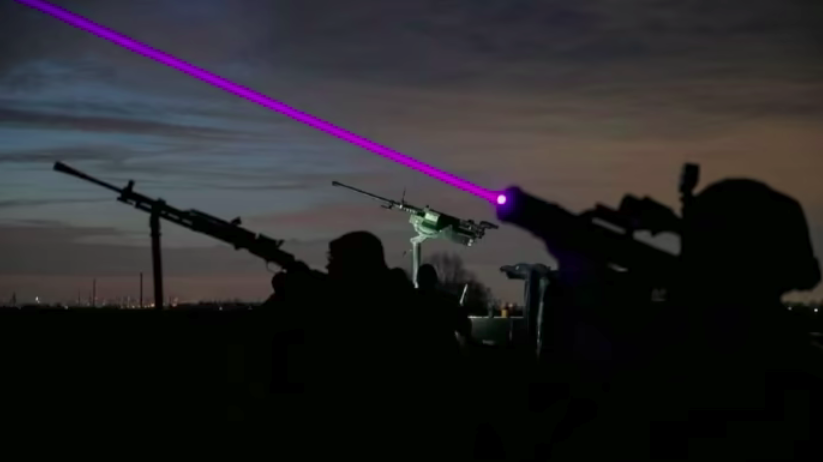

Ukrainian troops pay with blood for every Russian strike they repel — this is the cost of true defense. Colonel Yury Ihnat, head of the Communications Department of the Ukrainian Air Force, emphasizes that partners, especially Poland, have a unique opportunity to learn from Ukraine’s experience by observing the work of its air defense and avoiding their own mistakes.
After Russia first launched a massive drone attack against a NATO country, it became clear that defenses were not ready to repel such strikes. Nineteen drones entered, the most advanced aircraft were scrambled, yet only four were shot down. Ukraine, without F-35s or modern aviation, shoots down 400–500 drones per night over a single city. That’s why Ukraine offered Poland its operational experience in neutralizing this threat.
“You cannot account for everything when the enemy attacks with new systems. You have to try, experiment, and use innovative tools. Today, mobile fire groups are equipped with every possible gadget — from thermal imagers to optical and laser sights,” Ihnat explained.
Mobile fire groups are specialized air defense units armed with heavy machine guns, anti-aircraft cannons, and MANPADS, mounted on mobile chassis, usually pickups. This setup allows the units to move quickly and shoot down Shaheds, ArmyInform reports.
Ukrainian forces distribute aircraft, helicopters, small air defense units, interceptor drones, and electronic warfare systems across the country. The Air Force commander and regional commanders ensure even and efficient resource allocation, creating a unified air defense network.
Ukraine’s experience allows allies to witness real air defense operations on the front lines. Ukrainian forces regularly report on bomber takeoffs and ballistic launches from Russia’s Kursk and Bryansk regions.
“A few days ago, a drone flew over northern regions. An alert was issued in Poland, and several voivodeships received warnings about a potential UAV attack,” Ihnat said.
Partners receive complete information about drone movements and modern interception methods, helping them better organize their own defenses and train air security systems.
Repelling air attacks is an extremely complex task that costs lives. Ukrainian troops learn from their own mistakes and share this knowledge with allies. This allows Europe to prepare for modern threats while avoiding the errors that have cost Ukraine dozens of lives and hundreds of injuries.


Norway has established Camp Jomsborg, one of the largest Norwegian military camps abroad, in the forests of southeastern Poland to train Ukrainian soldiers with Norwegian instructors, NRK reported on 15 September.
The camp, built from scratch starting this summer, currently houses hundreds of Norwegian military personnel and has begun receiving its first groups of Ukrainian trainees – experienced combat veterans from the front lines.
“They are at war. There are drones and artillery strikes. There is close combat and firefights daily. We try to recreate that, so we follow the principle ‘train as you fight,'” a Norwegian Defense instructor told NRK.
The training focuses on realistic combat simulations, with the first module addressing stress management in combat conditions. During one exercise observed by NRK, a camouflaged soldier crouched against a pine tree with wide-open eyes while Ukrainian soldiers around him slapped his cheeks, struggling to make contact. White smoke drifted between the trees as explosions echoed through the forest.
“We must prepare soldiers as well as possible so they survive at the front,” Ukrainian brigade instructor “Darius” told NRK.
Darius, now 23, was studying international politics in Kyiv when Russia launched its full-scale invasion three and a half years ago. He has since fought in Zaporizhzhia, Bakhmut – nicknamed “the meat grinder” before it fell in spring 2023 – and currently serves at the front in Kharkiv.
The camp is part of Operation Legio, led by Norway and including all Nordic countries, the Baltic states, and Poland. The operation encompasses both weapons deliveries and soldier training.
According to Brigadier Atle Molde, chief of Operation Legio, this marks the first time Norway has led an international operation abroad.
The exact location of Camp Jomsborg remains classified, but thousands of pine trees have been felled to make room for tents and shooting ranges. Construction equipment operates continuously between tents and containers across the sprawling site.
Ukrainian instructors help design the training programs based on current battlefield conditions. “We contribute by being a testing ground where we can test all possible weapons systems,” Darius explained about the Ukrainian battlefield.
Logistics presents one of the biggest challenges, according to Darius. Equipment and weapons must be carried on foot for many kilometers, leading Ukrainians to experiment with unmanned vehicles for supply delivery.
“Soldiers must stay at their positions for two to three months,” he said. “Getting them out is extremely dangerous. Most of our losses occur when people are traveling to or from the front line.”
The training program includes tactics, trench warfare, and extensive drone operations for both surveillance and attacks. “We need a safe place to train where Russian missiles and attack drones cannot reach us,” Darius noted.
Knowledge exchange flows both ways. Ukrainian instructors provide Norwegian personnel with insights into front-line challenges and emerging battlefield trends.
The Norwegian stress management instructor described the impact of working with Ukrainian soldiers: “You notice there’s a bit more seriousness in the room when you’re teaching soldiers who come straight from the front and have been in sharp combat actions just days before arriving here. You know that what you’re teaching has a direct impact on those guys when they return to battle.”
Camp capacity will vary depending on training type – fewer for specialized courses, more for basic military education. When completed, the facility will accommodate several hundred Ukrainian soldiers.
Recent weeks have been marked by high-level politics, including conversations between US President Donald Trump and Russian President Vladimir Putin, and summits in China where Putin and North Korean leader Kim Jong-un were invited. European leaders have emphasized strengthening cooperation in supporting Ukraine, with European support now at record levels.
Molde acknowledged Russian interest in monitoring camp activities but dismissed immediate attack threats: “A direct attack on a NATO country where we are now is a very big red line to cross. So I don’t consider that a very big threat.”
Following NRK’s visit, several drones have entered Polish and Romanian airspace on multiple occasions. Russia was accused of deliberately sending drones into Polish airspace, which the country denied. According to the Defense Ministry, these incidents have not affected Camp Jomsborg activities.
Darius expressed concern about potential erosion of allied support, noting shortages of ammunition, equipment, and soldiers. “I hope for good news, but our mission is to do the job ourselves.”
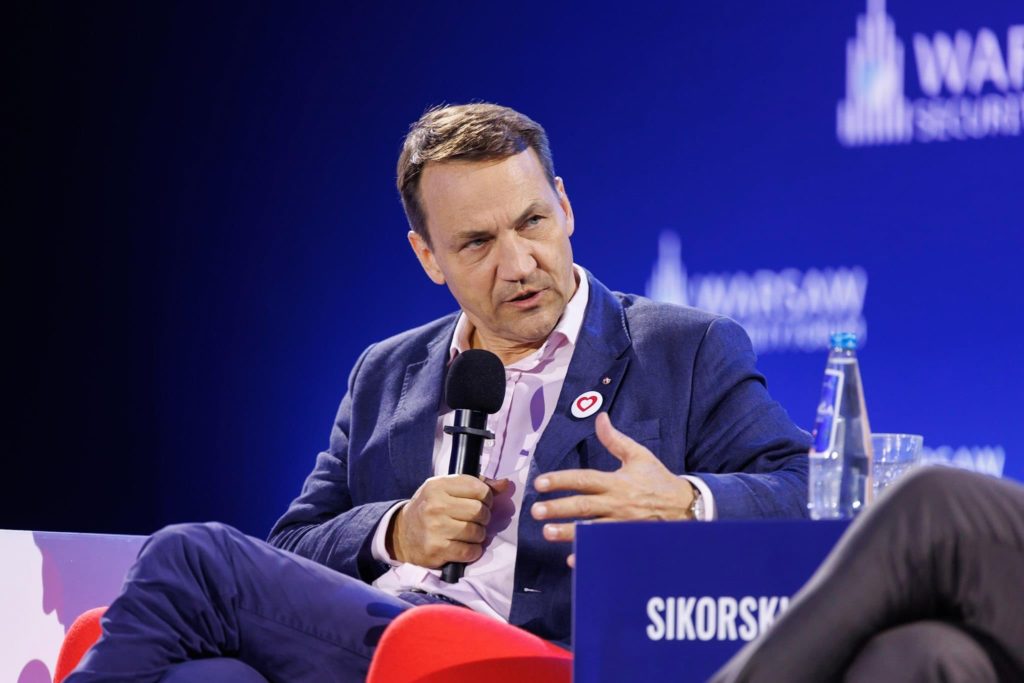

Poland’s foreign minister Radoslaw Sikorski has characterized Russia’s drone incursion into Polish airspace as a calculated test by the Kremlin to measure NATO’s response through incremental escalations without triggering full-scale war.
Radosław Sikorski confirmed that while the drones entering Poland carried no explosives, they were capable of bearing ammunition. “Interestingly, they were all duds, which suggests to me that Russia tried to test us without starting a war,” Sikorski told the Guardian in Kyiv.
The incursion occurred during Russia’s massive 10 September assault on Ukraine, when Moscow launched over 400 drones and more than 40 cruise and ballistic missiles. Nineteen Russian drones crossed into Polish territory, flying directly from Belarus rather than straying from Ukraine operations.
Poland scrambled F-35s and F-16s in response, marking the first time Polish forces deployed airborne weapons against unmanned vehicles. Despite aircraft deployment, Polish forces intercepted only three or four of the 19 drones, with some traveling hundreds of miles into Polish territory.
Sikorski dismissed suggestions that Polish air defenses were unprepared for the incursion. “The drones didn’t reach their targets and there was minor damage to property, nobody was hurt. If it happened in Ukraine, by Ukrainian definitions, that would be regarded as a 100% success,” he said.
The incident triggered NATO’s Article 4, requiring member states to consult when any ally faces threats to territorial integrity. However, NATO decided not to treat the deliberate drone incursion as an attack. The alliance announced Friday it would deploy more jets to the eastern flank to protect against future drone attacks.
Romania became the second NATO member to report a Russian drone incursion within days, scrambling two F-16 fighter jets Saturday to monitor the situation. The country’s defense ministry condemned Russia’s actions, with EU foreign policy chief Kaja Kallas describing them as unacceptable.
Romania summoned Moscow’s ambassador Vladimir Lipaev to protest what it called an “unacceptable and irresponsible act, which constitutes a violation of sovereignty.” The foreign ministry stated that “such recurring incidents contribute to the escalation and amplification of threats to regional security.”
Germany’s foreign minister Johann Wadephul called the Romanian incident “yet another unacceptable violation of the sovereignty of a close partner in the EU and Nato.”
Sikorski said Poland’s response would have been “much tougher” if the attack had caused injuries or deaths, though he declined to elaborate on future scenarios.
The Polish foreign minister rejected suggestions by Donald Trump that the incursion “could have been a mistake,” citing the scale of the operation.
“You can believe that one or two veer off target, but 19 mistakes in one night, over seven hours, sorry, I don’t believe it,” he said.
Prime Minister Donald Tusk said the incursion brought Poland closer to military war “than at any time since the second world war.”
Polish anti-drone teams will receive training from Ukrainian operators to defend against future attacks, Sikorski announced.
Training will occur at a NATO center in Poland rather than Ukraine for safety reasons. “This is something that the public and the governments in the west need urgently to integrate in their thinking … that it is the Ukrainians who will be training us how to stand up to Russia, not the other way around,” Sikorski added.
At a Kyiv conference, Trump’s Ukraine envoy Keith Kellogg said the US president was becoming “exasperated” with Putin but cautioned European leaders not to push Trump too hard. “One thing I would advise anyone who is working with President Trump – do not put him in a position where he thinks he’s being used, that is probably the worst place you can be with him,” Kellogg said.
Sikorski expressed hope Trump would receive the Nobel peace prize if he achieved “a fair peace” involving “Ukraine within defensible borders and a Ukraine that is integrating with the west.”
Twenty-six countries pledged at a Paris meeting to contribute to a postwar security mission for Ukraine, with some offering ground troops. European countries have discussed providing Ukraine “article 5-like” guarantees after a peace settlement to prevent future Russian attacks.
However, Sikorski warned against unrealistic security guarantees.
“Security guarantees are meant to deter a potential adversary … So what we are saying is that if there is some kind of peace, the next time Russia tries anything against Ukraine, we might go to war with Russia. Now I find that not very credible. Because if you want to go war with Russia, you can do it today and I see no volunteers. And there is nothing more dangerous in international relations than giving a guarantee that is not credible,” he said.
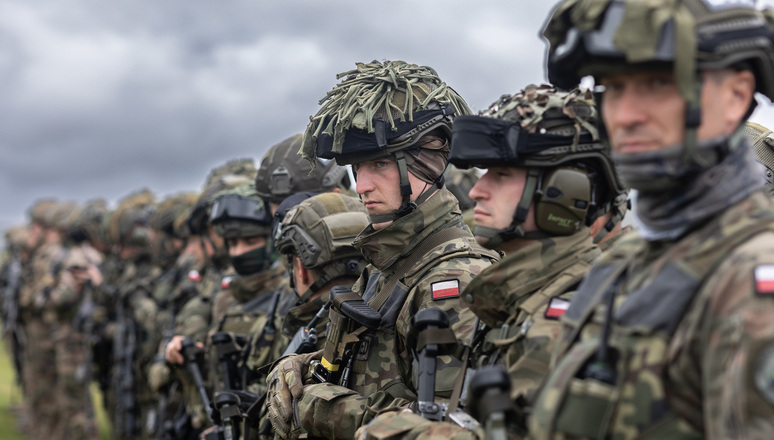

Polish President Karol Nawrocki signed a classified resolution this week allowing NATO forces to operate on Polish soil, according to Poland’s National Security Bureau.
The move comes as part of the alliance’s new “Eastern Sentinel” initiative that began on 12 September to strengthen Europe’s eastern flank.
NATO troops will now reinforce Polish defenses under the program, though the presidential resolution remains classified, the Poland’s National Security Bureau reports.
Secretary General Mark Rutte said military operations would begin “in the coming days” with forces from Denmark, France, Britain, Germany and other allies. Ground troops will deploy across eight countries, with room to expand if needed.
Russia’s massive assault on Ukraine on 10 September that violated Polish airspace. Moscow launched over 400 drones and more than 40 cruise and ballistic missiles that night, killing one person and injuring several others in Ukraine.
However, 19 Russian drones also crossed into Polish territory—not the usual strays from Ukraine, but aircraft flying directly from Belarus.
Poland scrambled advanced fighters, including F-35s and F-16s, marking the first time Polish forces used airborne weapons against the unmanned vehicles. Even with sophisticated aircraft deployed, Polish forces couldn’t intercept all targets.
The incursions triggered NATO’s Article 4, requiring member states to consult when any ally faces threats to territorial integrity or security. However, NATO decided not to treat this deliberate drone incursion as an attack.
The Eastern Sentinel rollout suggests the alliance views recent escalations as more than isolated incidents requiring a measured but substantial response along NATO’s eastern frontier.
Trump’s limited response to Russian drones entering Polish airspace this week has worried European allies who doubt whether he’s serious about NATO defense duties, Reuters reported.
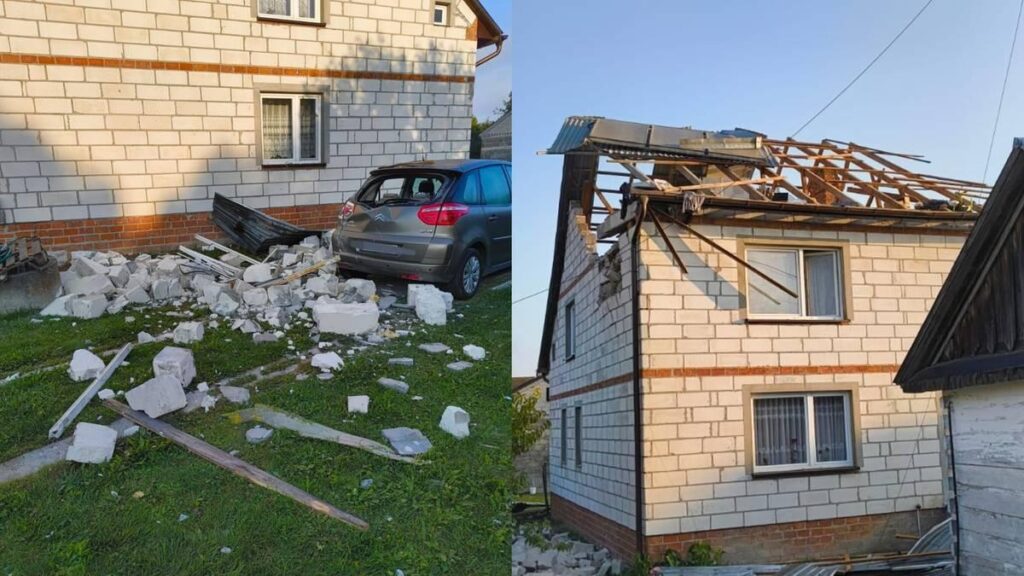

Poland fights a pro-Kremlin disinformation wave, PAP reports. Pro-Russian sentiments are rising in Poland, and the responsibility of politicians is to stop them, Prime Minister Donald Tusk said after Russian drone attacks on the country.
On 10 September, Russia launched 415 drones of various types and over 40 cruise and ballistic missiles against Ukraine. One person was killed and several were injured. Ukrainian air defenses destroyed more than 380 drones using mobile fire groups across the country. At the same time, 19 Russian drones crossed into Poland. The NATO state deployed several advanced aircraft, including F-35 and F-16, but still could not take down all the Russian targets.
“A wave of pro-Russian sentiment and anti-Ukrainian feeling is rising, created by the Kremlin using real fears and emotions,” Tusk wrote on X on Sunday, 14 September.
He emphasized that the task of politicians is to stop this wave before it affects society.
As expected, the attack caused strong fear and insecurity among Polish citizens. The country hosts points through which foreign weapons are delivered to Ukraine, heightening concerns.
These sentiments are actively supported by some Polish right-wing politicians and media, which build campaigns on anti-criminal emotions while ignoring the significant contributions of Ukrainians to Poland’s economy and society.
The Kremlin deliberately spreads disinformation and provokes confrontation between Poland and Ukraine to weaken Western support for Ukraine.
In 2024, the Ukrainians in Poland contributed about 2.7% of the country’s GDP, over 99 billion zlotys, which is nearly $20 billion . They established more than 77,700 private enterprises between 2022–2024, accounting for about 12% of all new businesses in the country during that period.
Earlier, Tusk assured that Polish services and the military know who is responsible for the drone attack.
“We will not be sensitive to manipulation and disinformation from Russia. Poland is confident about the sources, launch location, and intent of this action,” the Polish prime minister added.
The head of government urged Poles to rely only on verified information from official sources, including the military, services, and state media, to avoid panic and fake news.
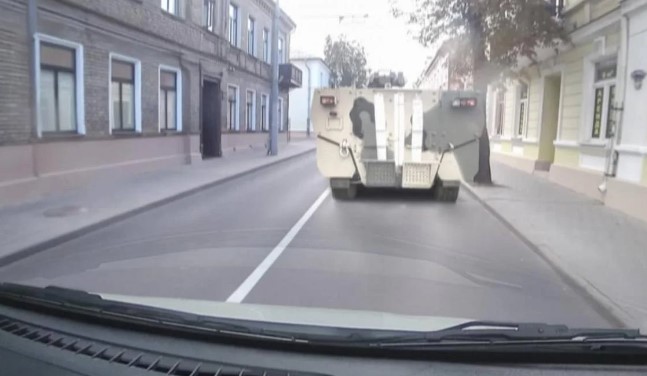

Moscow bares its teeth on the NATO border, Defense Express reports. In the Belarusian city of Grodno, near the Gozhsky training ground, a new Russian BTR-22 armored personnel carrier was spotted. It is involved in the joint Russia-Belarus exercises Zapad-2025.
The BTR-22 is equipped with a 30-mm 2A72 autocannon (330 rounds/min), a 7.62-mm PKTM machine gun, and can integrate a remotely controlled combat module. It reaches a maximum speed of 100 km/h, can cross water obstacles, weighs 20 tons, and is powered by a 330-hp engine.
According to the experts, the vehicle’s geolocation on Kirova Street was identified by the Telegram channel Military Journal. They suggest the BTR-22 photo may have been deliberately released by Russia, signaling strength to Poland, alongside related events:
The BTR-22 was first unveiled at the Army-2023 forum. Its unofficial nickname is “Budget Boomerang”, as it is a simplified modification of the BTR-82A. Even Russian sources admitted the vehicle lags 20 years behind modern standards, making it essentially a failed attempt to “reimagine” the old BTR-87 design.
Experts note that in 2025, Belarus finally adopted its own Volat V-2 APC after a 15-year delay. The Russian BTR-22’s appearance in Belarus is seen more as a political propaganda signal than a real enhancement of allied combat capabilities.
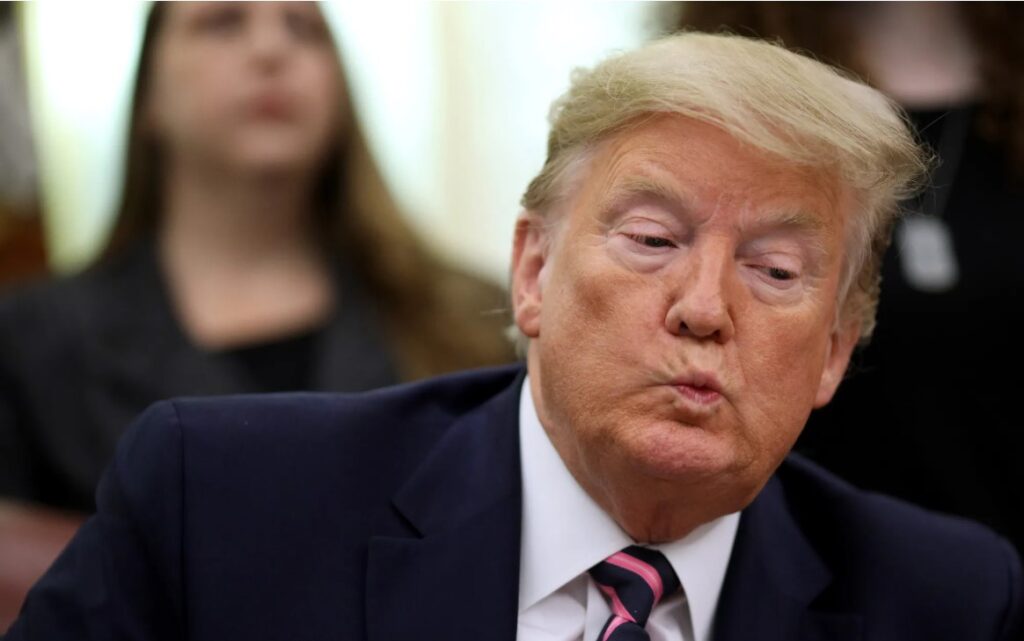

President Donald Trump’s restrained reaction to Russian drones violating Polish airspace this week has triggered anxiety among European allies who question his commitment to NATO defense obligations, according to Reuters.
The incident occurred on 10 September when 19 Russian drones, many flying from Belarus, crossed into Poland during attacks on Ukraine, prompting NATO members to fire on Russian targets for the first time since the full-scale war began.
Poland, using Polish F-16s, Dutch F-35s, and Italian AWACS, shot down at least four drones that had entered its airspace.
Czech Prime Minister Petr Fiala characterized the incident as Putin’s regime “systematically probing how far it can go,” though Russia and Belarus denied responsibility for the airspace violations.
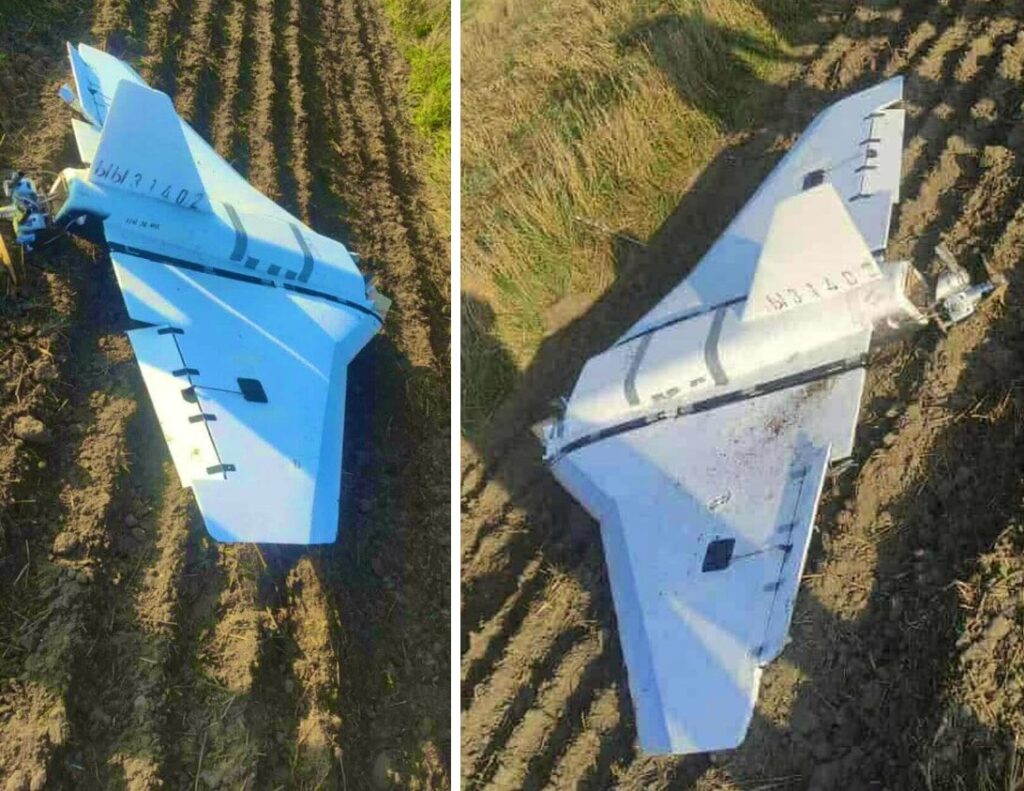
Trump’s initial reaction came through a cryptic post on his Truth Social platform: “What’s with Russia violating Poland’s airspace with drones? Here we go!”
When pressed by reporters the following day about the Russian drone incursion, Trump suggested “it could have been a mistake.”
However, Polish Prime Minister Donald Tusk rejected this notion, flatly contradicting the assessment that drones could have entered Poland in error.
Poland activated Article 4 of NATO’s treaty following the incident, under which alliance members can demand consultations when a member’s territorial integrity or security is threatened.
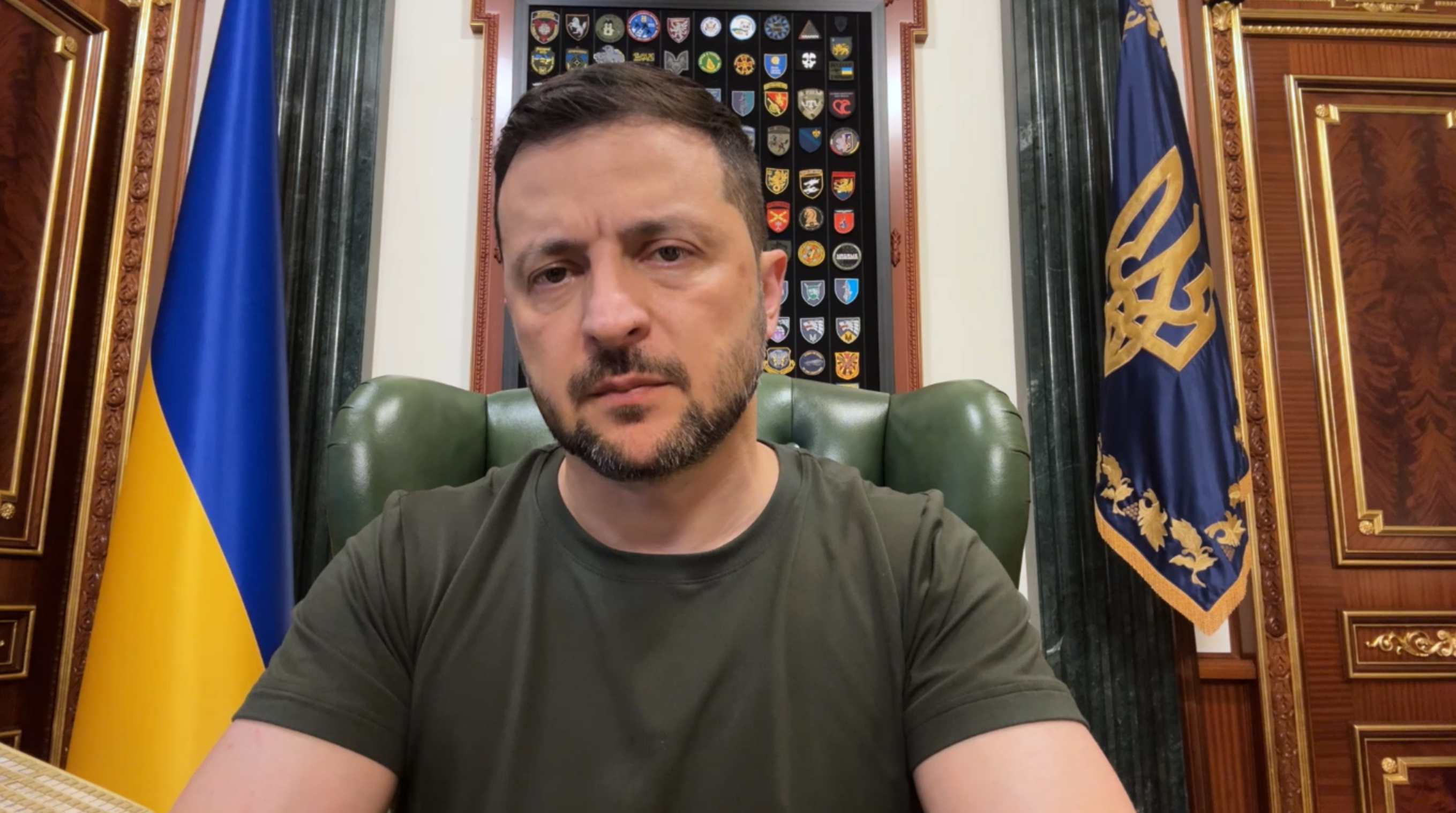
Multiple European diplomatic sources described reactions ranging from dismay to confusion. A senior German official told Reuters that while the US participated in drone discussions with NATO allies, America appeared “hesitant” and the drone attack revealed significant gaps in NATO’s preparedness.
The official stated: “With this US administration, we can’t rely on anything. But we have to pretend that we could.”
An Eastern European diplomat characterized Washington’s response as problematic, telling Reuters:
“No one in NATO has been particularly reassured by the US at this point. Washington’s silence has been almost deafening.”
An Italian official indicated that alliance members formed a mostly negative impression of the US response while avoiding open criticism.
The response differed markedly from previous US handling of threats against NATO allies. When reports suggested a Russian missile struck a Polish village in November 2022, then-President Joe Biden quickly convened emergency meetings with world leaders and shifted into crisis management mode. That incident was later determined to involve a misfired Ukrainian air defense missile.
Ivo Daalder, US ambassador to NATO from 2009 to 2013 and now a senior fellow at Harvard’s Belfer Center, told Reuters:
“This episode underscores that Trump, in contrast to every president since Roosevelt, does not see Europe’s security is fundamental to American security.”
Trump has repeatedly set deadlines for Moscow to agree ceasefires with Ukraine or face new sanctions, only to withdraw from these positions.
He told Fox News Friday that his patience with Putin was “running out fast,” though he stopped short of threatening new sanctions over the Russo-Ukrainian war.
Instead, Trump welcomed Putin at a peace summit in Alaska in mid-August but failed to secure major concessions.
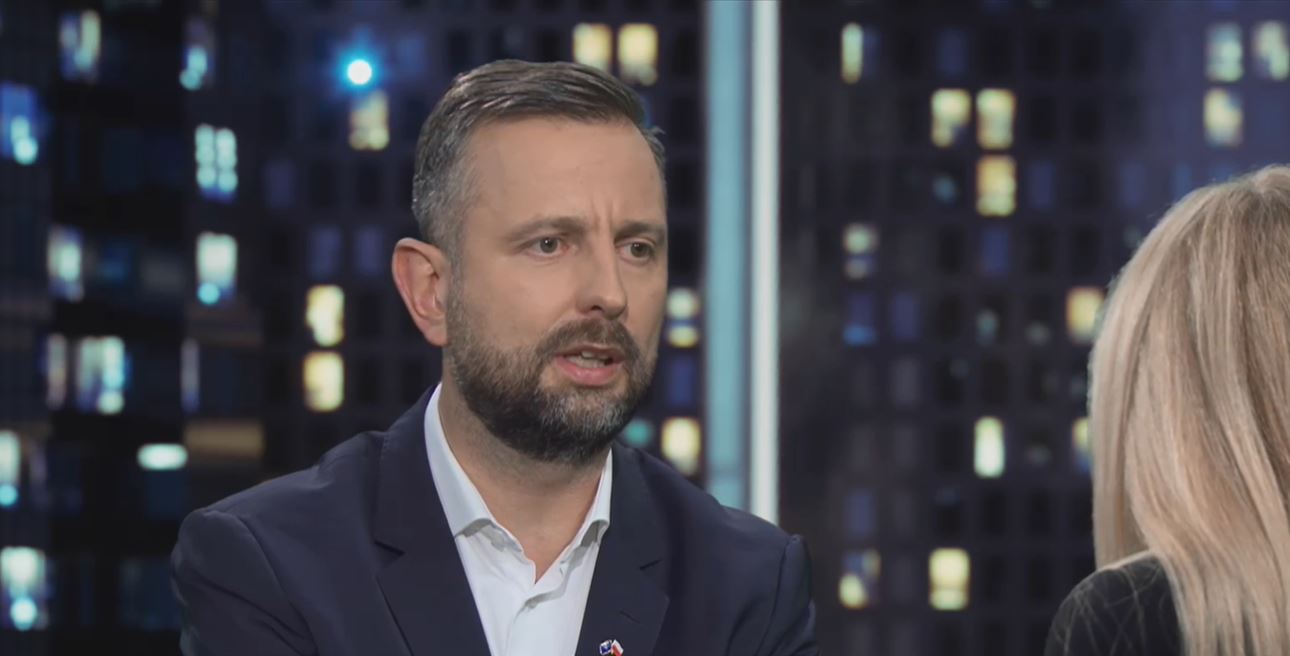
NATO Secretary-General Mark Rutte announced plans to strengthen the alliance’s eastern flank defense, stating that Trump had made “absolutely clear that we all stand together on this.”
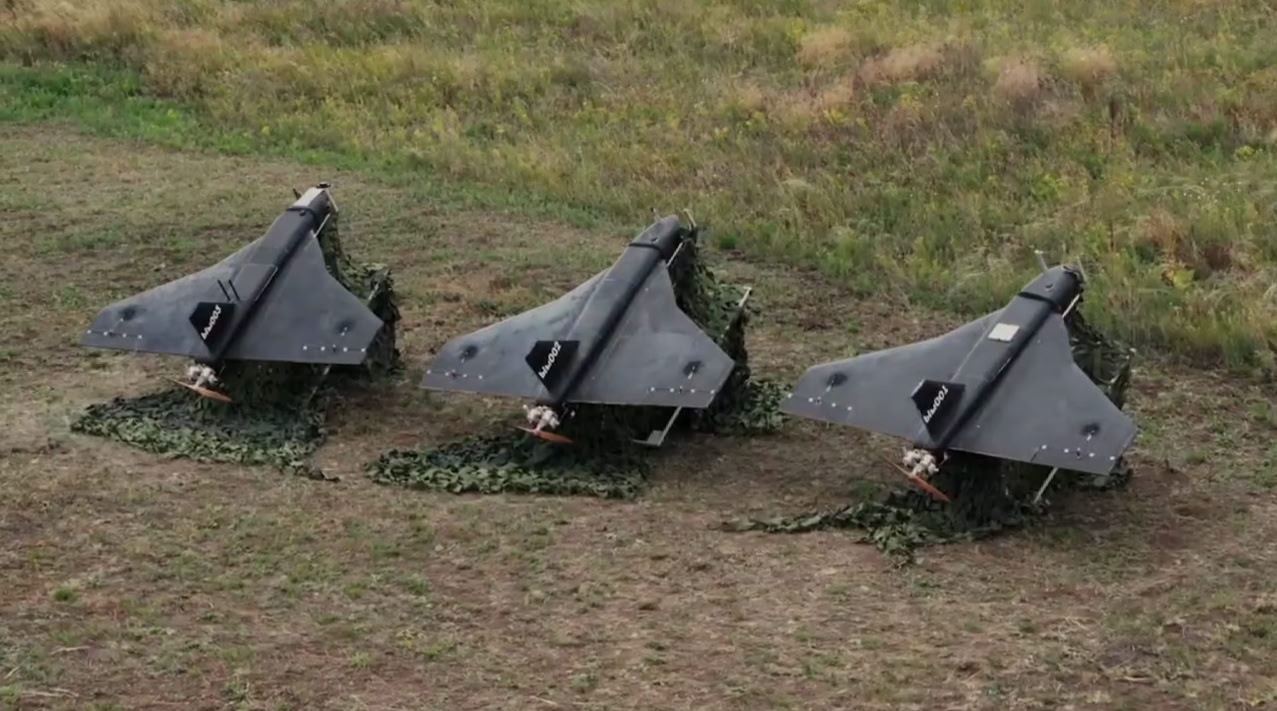
US warplanes played no role in shooting down the drones that violated Polish airspace, which US officials attributed to Dutch military responsibility for Polish air space under NATO’s air policing mission at the time.
A White House official told Reuters that the president “wants this war, which was brought on by Joe Biden’s incompetence, to end as quickly as possible” and that Russia and Ukraine should halt the conflict while Europe should “do its part by putting economic pressure on countries that finance the war.”


© David Guttenfelder/The New York Times


© Vadim Ghirda/Associated Press


Polish Foreign Minister Radosław Sikorski questioned the effectiveness of discussion about security guarantees for Ukraine, suggesting the term itself may be misleading, according to European Pravda.
In recent months, Ukraine’s western partners have been discussing “security guarantees” aimed at preventing further Russian aggression in the event of a ceasefire.
Proposed measures include formal security treaties, peacekeeping forces, military support, and economic sanctions. However, the effectiveness of these guarantees remains unproven, as they largely depend on Russia agreeing to a ceasefire in the first place.
Speaking at the annual Yalta European Strategy meeting in Kyiv, Sikorski said that Ukraine already had “guarantees”, even if they were called differently, in the 1994 Budapest Memorandum.
The Budapest Memorandum was an agreement signed by Ukraine, Russia, the United States, and the United Kingdom that was intended to safeguard Ukraine’s territorial integrity and sovereignty in exchange for Kyiv giving up its nuclear arsenal. The memorandum ultimately failed when Russia invaded Ukraine in 2014.
Sikorski argued that any new, more concrete guarantees would likely fail to deter Russian aggression.
“The purpose of security guarantees is to deter Russia from renewed aggression. In essence, if we give security guarantees to Ukraine, we are saying we could go to war against Russia,” Sikorski said.
“I don’t think that’s convincing. Who wants to fight Russia? I don’t see many volunteers. In international relations, nothing is worse than offering guarantees that are not trusted.”
Sikorski called for a shift in focus away from guarantees, urging instead for monitoring of peace and strengthening Ukraine’s capabilities.
He emphasized prioritizing military and financial support, warning that prolonged discussions on guarantees could distract policymakers from urgent funding needs for 2026 and 2027.
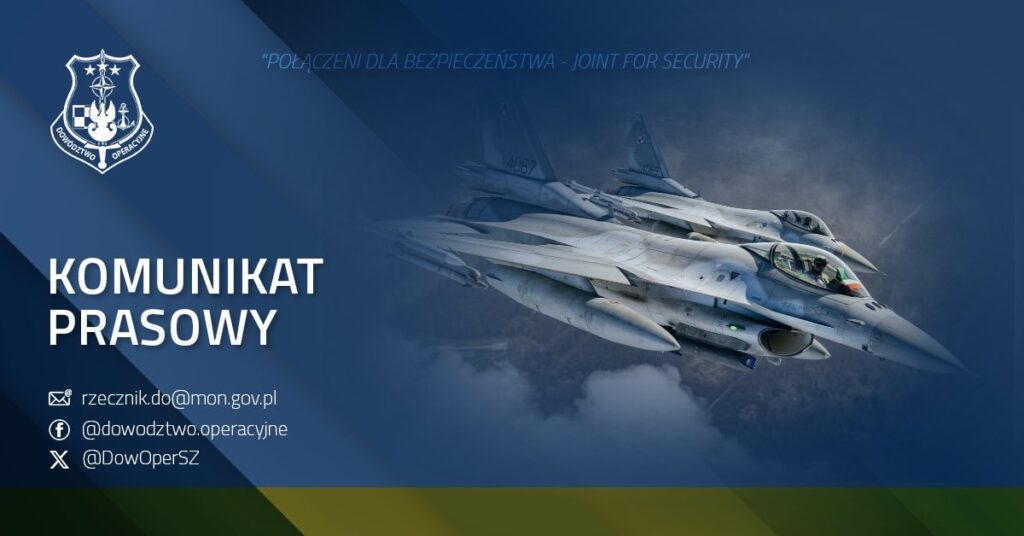

Polish authorities scrambled fighter jets and suspended operations at Lublin Airport on Saturday after reports of Russian drones in Ukrainian regions near the Polish border.
The incident comes after a wave of Russian drones entered Poland on 10 September, prompting NATO to review its eastern defenses.
“Due to the threat of drone strikes in Ukrainian regions bordering Poland, military aircraft have been deployed in our airspace,” the Operational Command of the Polish Armed Forces said on Facebook.
“Polish and allied aircraft are operating in our airspace, while ground-based air defense and radar reconnaissance systems have been placed on the highest state of readiness,” the statement continued.
The Operational Command said that the measures are preventive, aimed at ensuring the safety of Polish airspace and protecting citizens near areas under threat.


© Doug Mills/The New York Times


© Wojtek Radwanski/Agence France-Presse — Getty Images
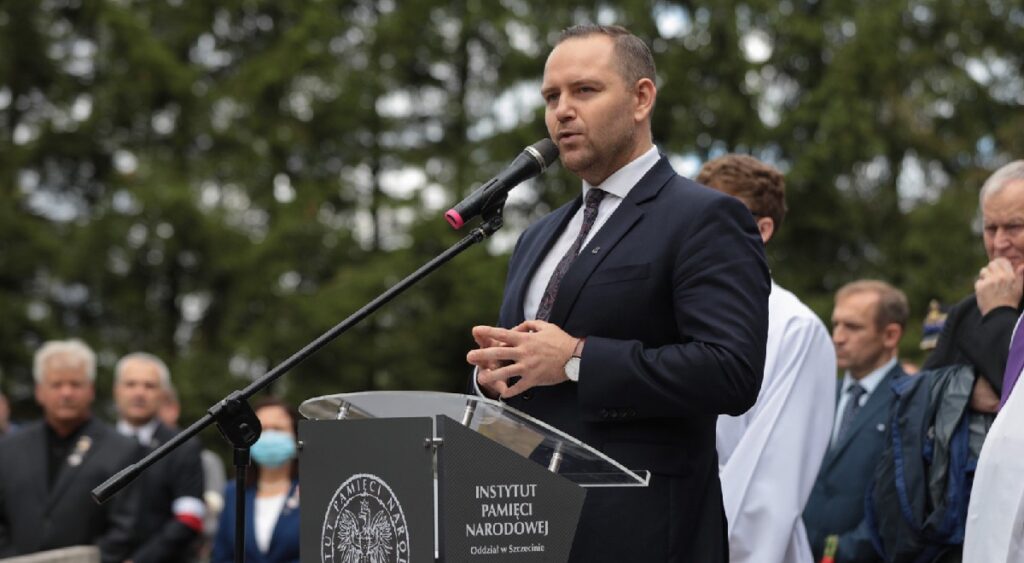

The Polish Sejm approved new legislation on 13 September, regulating the status of Ukrainian citizens who fled Russia’s full-scale invasion and their eligibility for financial assistance, according to the Polish media PAP.
The bill, passed with 227 votes in favor, 194 against, and seven abstentions, emerged after President Karol Nawrotcki vetoed earlier amendments to the so-called 800+ aid program for Ukrainian citizens in Poland at the end of August.
“The 800+ benefit should only go to those Ukrainians who work in Poland,” Nawrotcki explained his decision to reject the previous legislation.
The new law ties benefit eligibility to professional activity and children’s enrollment in Polish schools, with exceptions for people with disabilities. Foreigners must earn at least 50% of the minimum wage – 2,333 zloty gross in 2025 – to qualify for payments.
Polish authorities will conduct monthly checks on whether Ukrainians are working, suspending 800+ payments for those who are not. The Social Insurance Institution (ZUS) will also verify through Border Guard records whether Ukrainian citizens have left Poland.
The legislation introduces mandatory PESEL numbers for benefit applicants and their children to improve identification. Officials will verify children’s presence in Polish territory when assigning these identification numbers.
Healthcare access for adult Ukrainian citizens faces new restrictions under the law, limiting medical rehabilitation, dental treatment, and pharmaceutical programs.
The Sejm extended the legal status of Ukrainians who fled the war until 4 March 2026, aligning with the European Union Council decision. Current regulations provide temporary protection until the end of September 2025, after which Ukrainians would face problems with legal employment.
Deputies rejected several opposition amendments during the vote. The Law and Justice (PiS) party’s proposals for harsher penalties for illegal border crossings, anti-Bandera propaganda laws, and extending the residency requirement for Polish citizenship from three to 10 years all failed.
Claudia Jachira from the Civic Coalition wanted to link 800+ benefits to employment activity for both foreigners and Polish citizens, but her amendment was rejected. The Together (Razem) group’s proposal to restore previous benefit conditions also lacked support.
The new regulations integrate databases from various institutions to monitor foreigners’ eligibility and eliminate benefit fraud attempts. The law takes effect the day after publication in the Official Journal.


NATO’s Supreme Allied Commander Europe Aleksus Hrinkevich declined to commit to shooting down Russian missiles and drones over western Ukraine during a press conference on Operation Eastern Guardian, the Alliance’s new air defense mission.
When asked by a journalist whether NATO countries on the eastern flank should intercept Russian projectiles approaching their borders over western Ukraine, and whether it was time to “fully integrate” with Kyiv since both face “the same enemy,” Hrinkevich said with measured restraint.
“I would say that Eastern Guardian is focused on defending Alliance territory,” the commander added.
The general said that he sees no conflict between individual countries’ support for Ukraine and their contributions to Operation Eastern Guardian.
The operation emerges as NATO’s direct response to repeated violations of member states’ airspace, particularly by Russian drones over Poland. The Alliance announced the mission would begin “in the coming days” and continue for an indefinite period.
The timing follows a series of escalating incidents. On 10 September, Russian drones breached Polish airspace. President Zelenskyy said the following day that Russia may have deliberately targeted Poland to prevent Ukraine from receiving air defense systems before winter.
NATO’s announcement of Operation Eastern Guardian came one day after Zelenskyy’s remarks, signaling the Alliance’s commitment to protecting member territories while maintaining its current approach to Ukraine support.
The operation represents NATO’s most direct military response to Russian incursions into member state airspace since the war began, though Hrinkevich’s comments indicate the mission will focus strictly on Alliance territory rather than extending defensive cover over Ukrainian airspace.
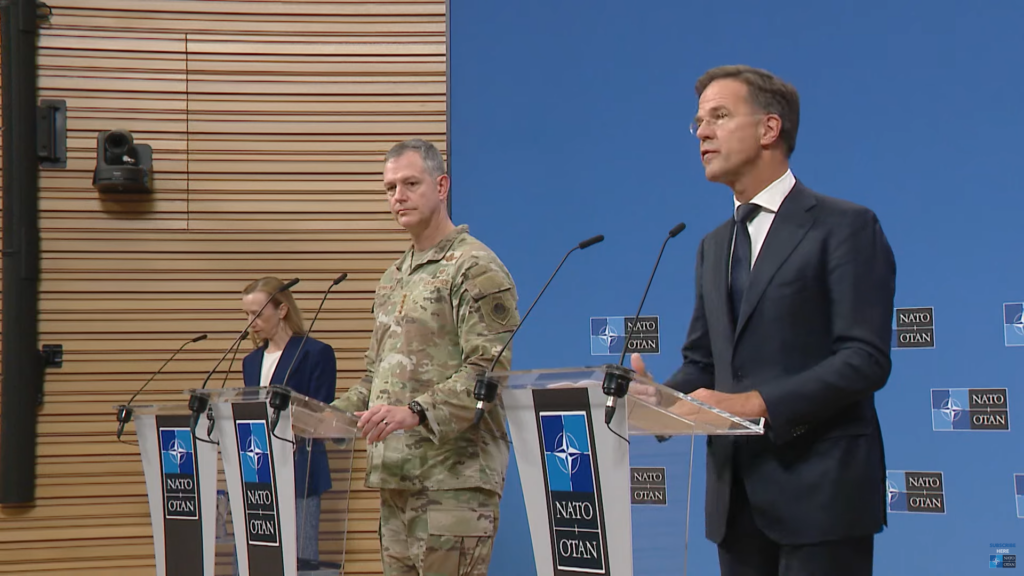

NATO has announced a new defensive initiative, “Eastern Sentry,” aimed at strengthening the alliance’s ability to respond to Russian drone incursions. NATO Secretary General Mark Rutte and Supreme Allied Commander Europe (SACEUR) General Alexus G. Grynkewich made the announcement at a joint press conference on 12 September 2025.
This comes just two days after a wave of Russian drones entered Polish territory, sparking alarm among NATO members.
The operation is a direct response to Poland invoking Article 4 of the NATO treaty, which calls for consultations among allies when a member’s territorial integrity, political independence, or security is threatened.
Rutte said Eastern Sentry will bolster the eastern flank, ensuring the safety and security of alliance nations.
The operation will begin in the coming days and involve military assets from Denmark, France, Germany, the United Kingdom, and other member states.
NATO Secretary General Mark Rutte said the effort will combine traditional military capabilities with measures specifically designed to address drone threats.
“Eastern Sentry will add flexibility and strength to our posture, and make clear that, as a defensive alliance, we are always ready to defend,” he said.
SACEUR highlighted that integrated air- and ground-based defenses will be central to the initiative. While the immediate focus is on Poland, he emphasized that the threat transcends national borders and affects the entire alliance.
Eastern Sentry will enhance deterrence, increase information sharing, and allow rapid deployment of counter-drone technologies.
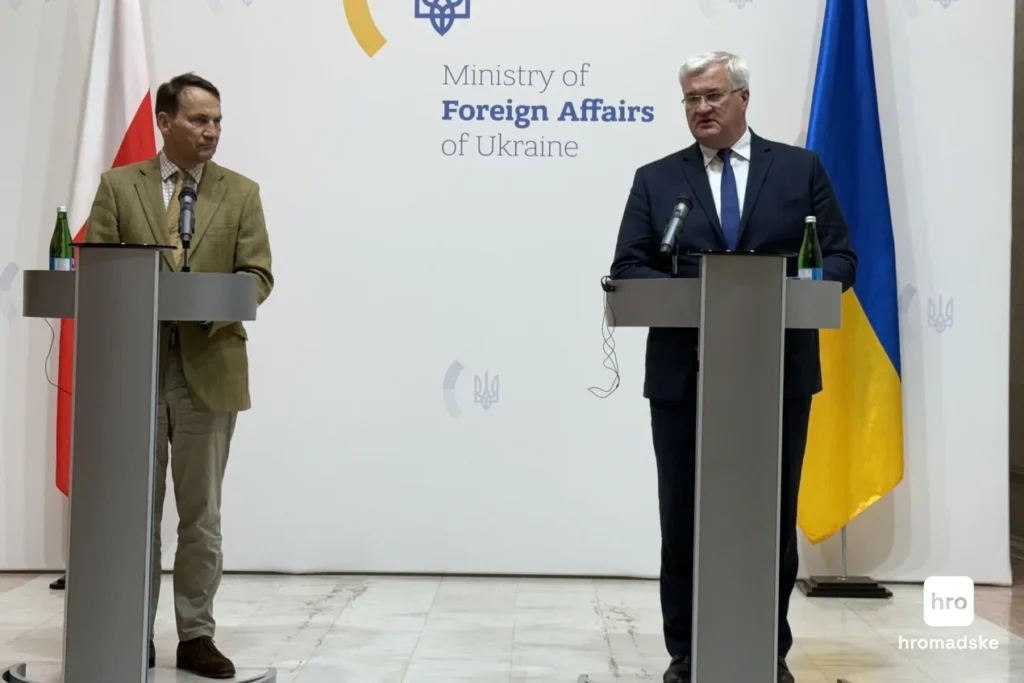

Poland’s Foreign Minister Radoslaw Sikorsky said his country has no plans to sever diplomatic ties with Russia despite recent drone incursions, stating he sees no grounds for such action during a joint press conference with Ukrainian Foreign Minister Andriy Sybiha in Kyiv.
The Polish foreign minister’s comments came following Russia’s 10 September attack on Ukraine, during which at least 19 drones entered Polish airspace from Belarus in what Polish officials called the first direct incursion from Belarusian territory rather than accidental overflight from Ukraine.
“In diplomacy, communication channels are maintained not only with friends, but also with competitors and opponents. Therefore, as of now, I see no grounds for breaking off relations. The best response to Russian aggression will be solidarity with Ukraine and Western unity,” Sikorsky told journalists, according to Wyborcza.pl.
He explained that current diplomatic relations between Warsaw and Moscow consist of “mutual summons (of embassy heads) and delivery of protest notes,” while Russian diplomats face movement restrictions within Poland. Poland has already limited Russian diplomatic activity in certain voivodeships and called on European partners to reduce their numbers.
Sikorsky characterized the drone intrusion as a “moment of truth” and rejected suggestions the incursion was accidental. “They flew in from Belarus, and it lasted seven hours. Anyone who says these are Ukrainian drones is repeating Russian propaganda,” he said.
Polish operational command of the Armed Forces labeled the 10 September incident an “act of aggression.” For the first time, Poland used aircraft weapons against the drones, temporarily closed four airports, and activated territorial defense reserves in border voivodeships.
Prime Minister Donald Tusk noted this marked the first time drones entered Poland directly from Belarus rather than from Ukraine “as a result of errors or minor Russian provocations.”
Poland invoked NATO Article 4, which provides for consultations when member states believe their territorial integrity, political independence or security faces threats. Russia’s Defense Ministry claimed it achieved all targets in Ukraine during the night attack and had not planned to strike objects on Polish territory.
The escalation of Russian attacks on Ukraine demonstrates that Russia is not ready for peace and ceasefire, Sikorsky said. Against this backdrop, Poland is prepared to expand military cooperation with Ukraine.
“Poland was the biggest beneficiary [of aid], and we are ready to provide 40 million euros,” the Polish foreign minister announced.
Ukrainian Foreign Minister Sybiha responded that Ukraine is ready to assist Poland in countering Russian threats. “Ukraine is already successfully repelling attacks. We need to work on a joint drone defense system,” he said.
Sybiha called for increased pressure on Moscow to achieve peace, specifically expanding sanctions on Russian banks and the “shadow fleet.” He added that he and Sikorsky “touched on the topic of the past” between the two nations, agreeing to facilitate “constructive dialogue on historical issues.”
The drone incident prompted Poland to request NATO Article 4 consultations for the first time regarding Russian actions. Polish territorial defense forces announced they might shorten response times for reservists in voivodeships bordering Ukraine.
Sikorsky also said that the intensification of Russian strikes following Vladimir Putin’s meeting with Donald Trump indicates Russia’s desire to continue its war of aggression.
Following the airspace violation, Polish military personnel will travel to Ukraine to learn drone interception techniques, according to previous reports.
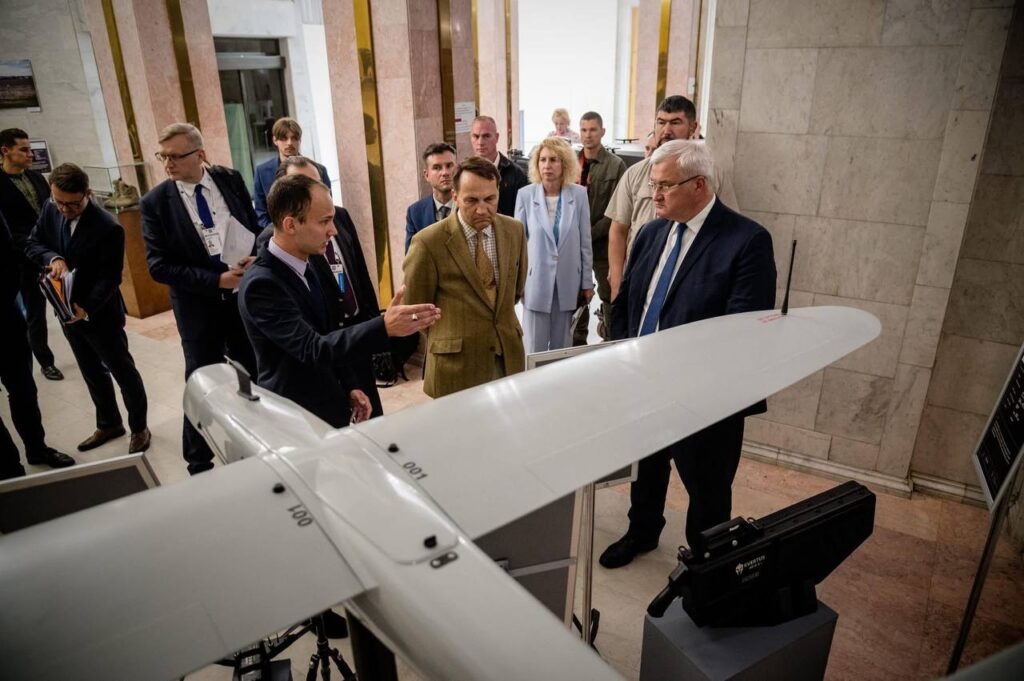

Polish Foreign Minister Radosław Sikorski dismissed suggestions that recent drone incursions into Polish airspace were linked to Ukrainian actions. He said the claims were either authored by or complicit with Russian propaganda.
This comes after a wave of drones entered Polish airspace on 10 September, engaging Polish air defences and causing alarm among NATO members.
Speaking at a joint press conference in Kyiv with Ukrainian Foreign Minister Andriy Sybiha on Thursday, Sikorski stressed that the incident was a deliberate Russian operation, and not an accident.
“This intrusion into Polish and NATO airspace by Russian drones is a moment of truth, because these drones entered our airspace not only from Ukraine but also from Belarus. The air engagement lasted seven hours.
“This was not a coincidence, and anyone who claims it was a Ukrainian provocation is either the author of, or complicit in, Russian propaganda,” Sikorski said, according to a Ukrinform correspondent.
He warned against repeating these disinformation narratives, and clarified that Poland is “confident these were Russian drones and that this was a Russian operation.”
In Kyiv on 12 September, Ukrainian and Polish foreign ministers discussed boosting defense cooperation through joint ventures, arms production, and air defense initiatives, as well as sanctions on Russia and advancing historical reconciliation.


© Wojtek Radwanski/Agence France-Presse — Getty Images


Russian forces had been preparing strikes on Poland and Lithuania for months, using 4G modems with Polish and Lithuanian SIM cards to test drone connectivity as early as June, according to the Ukrainian defense news outlet Defense Express.
In early July, Polish investigators revealed that wreckage from Russian drones shot down in Ukraine contained 4G modems equipped with SIM cards from Polish mobile operators, as reported by Polish journalist Marek Budzisz. Later, a SIM card from a Lithuanian operator was also discovered in another drone.
Analysts say this detail directly points to Russia’s preparation for drone incursions into NATO airspace, as Moscow tested mobile network connections in advance. The findings were reported to partners in Poland and Lithuania. Still, the revelations triggered little reaction domestically — even as Russian drones began entering Polish airspace regularly during the summer.
Help us tell the stories that need to be heard. YOUR SUPPORT = OUR VOICE“Whether the Russian drones that attacked Poland today had such capabilities remains unknown. At the same time, the assumption that one of the tasks of this Russian attack was precisely reconnaissance of Poland’s air defense system is quite justified,” Defense Express wrote, noting that the Russia-Belarus military drills Zapad 2025 kick off today.
During Russia’s air attacks against Ukraine, Moscow’s drones violated the Polish airspace on multiple occasions. For example, on 7 September, a Russian drone bearing with “Cyrillic inscriptions” crashed near the Terespol border crossing with Belarus, according to Polish media. Poland and NATO forces, however, refused to shoot down such drones up until 10 September.
And in the early hours of 10 September, Russian drones once again violated Polish airspace. The incident prompted Polish aviation to scramble and temporarily shut down airports in Warsaw, Lublin, and Rzeszów amid fears of a wider attack. NATO fighter jets shot down at least four of reportedly 19 drones that crossed into Poland.
Ukraine’s Air Force said on 10 September that Russia launched 415 drones and 43 missiles, while the country’s president, Volodymyr Zelenskyy, stated that at least eight Shahed explosive drones were deliberately “aimed toward Poland,” calling the incident “a perilous precedent for Europe” and urging a united response from Western partners.
Despite clear evidence of intent, NATO has so far avoided classifying the violation as an act of aggression.
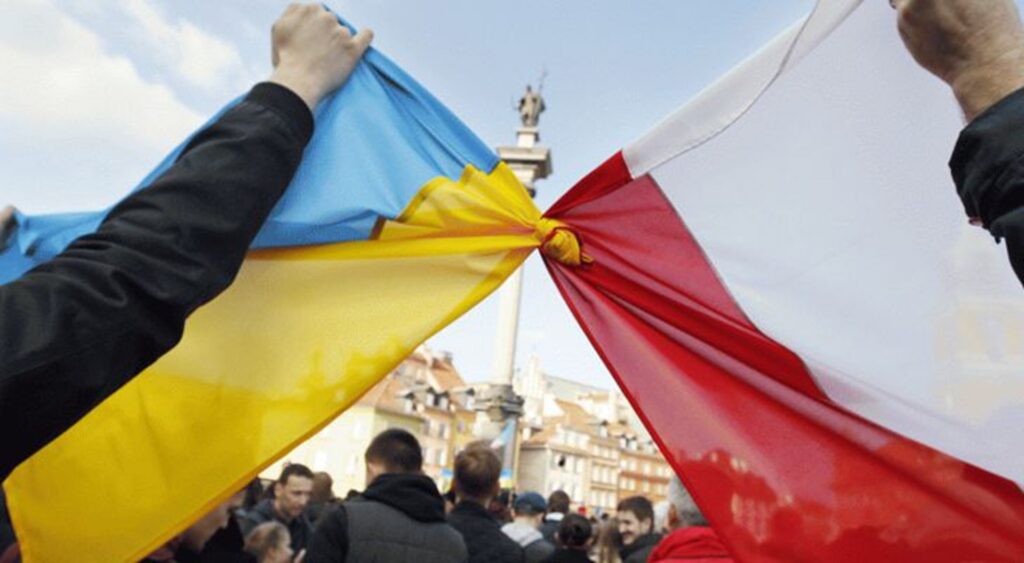

Poland will send military representatives to Ukraine to learn techniques for shooting down drones, Reuters reported on 11 September.
The move follows Russian-made drones crossing into Polish airspace on the night of 10 September, leaving debris from around 15 drones in various regions. Polish authorities said the incursions were intended as a provocation and to test NATO’s response.
Ukraine has extensive experience defending against Russian drone and missile attacks and will provide guidance for the Polish personnel. The training will give Polish forces practical, hands-on experience under instructors who have faced similar threats on the frontline.
President Volodymyr Zelenskyy emphasized the need for multi-layered air defense systems combining mobile fire units, interceptor drones, helicopters, and aircraft. He noted that expensive systems like Patriot missiles ($2-3 million each) are not practical for intercepting cheaper Shahed drones, which cost roughly $100,000 each.
Zelenskyy also suggested that the Poland drone strike may have been intended to influence Western decisions on supplying air defense systems to Ukraine.
The incident highlights the growing transnational risks of Russia’s drone operations and the importance of NATO allies coordinating defensive measures.
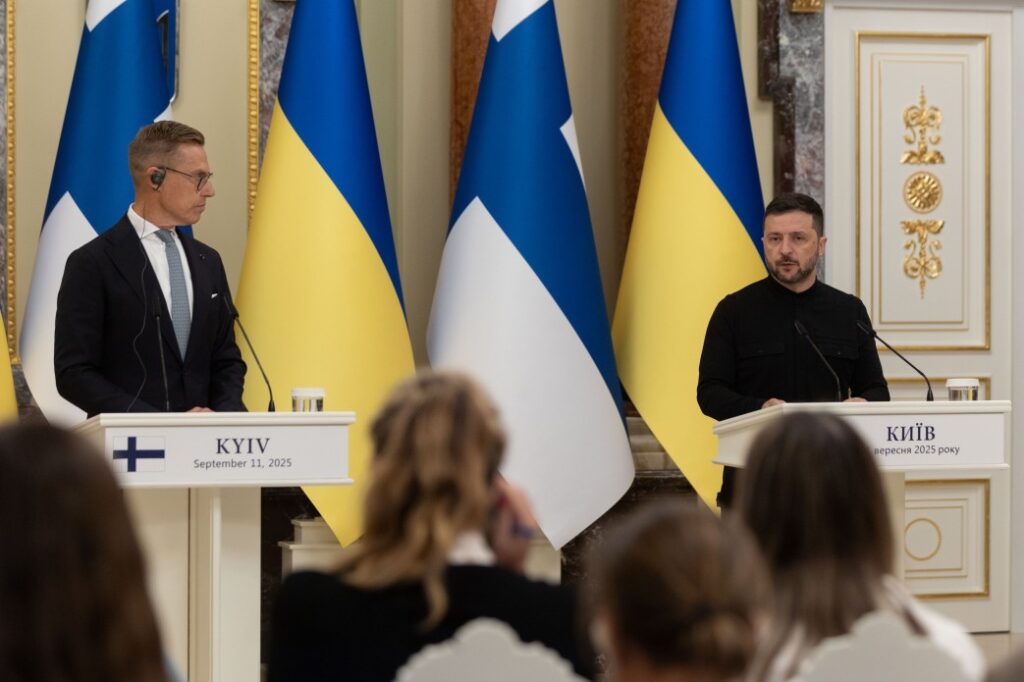

Ukraine’s President Volodymyr Zelenskyy suggested that Russia’s recent drone attack on Poland may have been intended to discourage Western partners from supplying air defense systems to Ukraine ahead of winter. He made the remarks during a joint press conference with Finnish President Alexander Stubb in Kyiv on 11 September.
Air defense remains critical for Ukraine as it faces continuous Russian drone and missile attacks. Protecting civilians, infrastructure, and military positions requires a multi-layered system capable of countering both high-cost ballistic threats and swarming drones. Zelenskyy emphasized that Ukraine’s experience in coordinating such defenses can benefit European partners.
The drone attack on Poland on 10–11 September involved Russian-made drones crossing into Polish territory. While damage was limited, the strike alarmed NATO and European countries, showing the reach of Russia’s drone operations.
Zelenskyy suggested the attack also tested NATO’s response and sought to influence decisions on supplying additional air defense systems to Ukraine.
Zelenskyy said the strike allowed Russia to test NATO’s political response and Poland’s defenses. “The most terrible thing is that this attack is psychologically similar to Crimea,” he noted, adding that drones have replaced the “little green men” of the 2014 occupation.
The Ukrainian president stressed that high-cost systems like Patriot and SAMP/T missiles, which cost $2-3 million each, are not ideal for countering low-cost drones such as Shaheds, which only cost about $100,000.
Effective defense requires a combination of mobile fire groups, interceptor drones, helicopters, and aircraft. He concluded that building reliable, multi-layered air defenses across Europe is now a top priority.
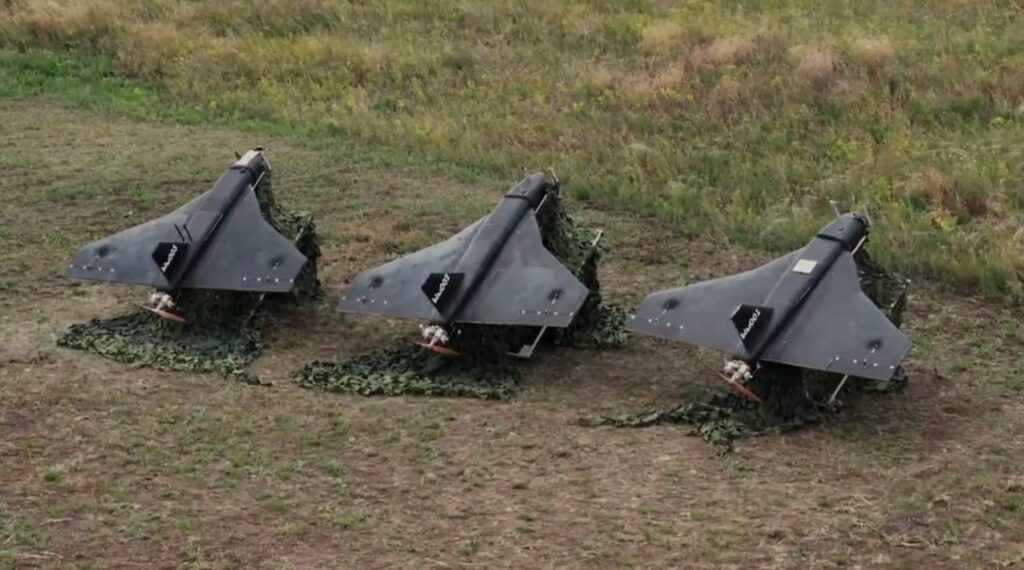

The Washington Post’s Editorial Board correctly identifies sending nineteen Gerbera drones into Polish airspace as a calculated test of alliance credibility.
However, their proposed response exposes a deeper problem: solutions remain dangerously inadequate even when America’s foreign policy establishment grasps the threat.
Putin has fundamentally changed the game. After stalling Trump’s peace efforts with massive strikes on Kyiv, Moscow moved to test NATO territory.
The Post recognizes this isn’t random—it’s strategic boundary-pushing designed to fracture alliance unity.
Yet the papers’ “short of war” recommendations—redeploying some existing troops to Poland, allowing drone shootdowns over Ukrainian airspace—treat a strategic escalation with tactical adjustments.
For a newspaper warning that “ambiguity telegraphs weakness,” this seems remarkably restrained.
However, this gap matters globally. Very much so.
When America’s leading foreign policy voices correctly diagnose Russian escalation but offer modest responses, it signals continued Western hesitation.
Putin reads this disconnect perfectly—establishment analysis shows awareness, but policy recommendations show continued caution.
The specific incident proves the pattern. While Trump responded with a dismissive social media post—“What’s with Russia violating Poland’s airspace with drones? Here we go!”—Moscow demonstrated it can probe NATO territory and expect limited responses.
This represents the core problem Euromaidan Press has tracked throughout the war: Western institutions see Russian threats clearly but consistently under-respond.
The Washington Post warns that alliance guarantees are “ultimately just a promise written on paper,” yet Putin’s calculation appears correct—each escalation meets academic analysis rather than decisive action.
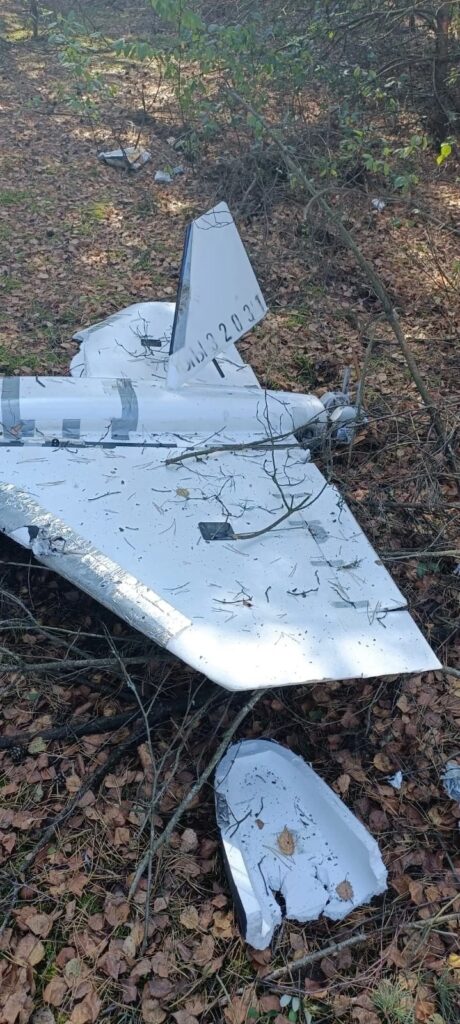

A Russian drone landed on the grounds of a Polish territorial defense base near Warsaw on 10 September, RMF24 reports. The incident occurred during a wave of at least 19 drones, flying in from Belarus and Ukraine, that violated Polish airspace overnight. No injuries or damage were reported. 16 16 UAVs were later recovered across Poland
RMF24 confirmed that one of the drones fell on the territory of a Polish Territorial Defense Forces unit in Nowe Miasto nad Pilicą, located in Grójec County, not far from Warsaw. The drone was an unarmed Gerbera-type UAV and did not cause any structural damage, according to the report. This is the first confirmed case of a Russian drone landing within a military facility in Poland, a NATO member state.
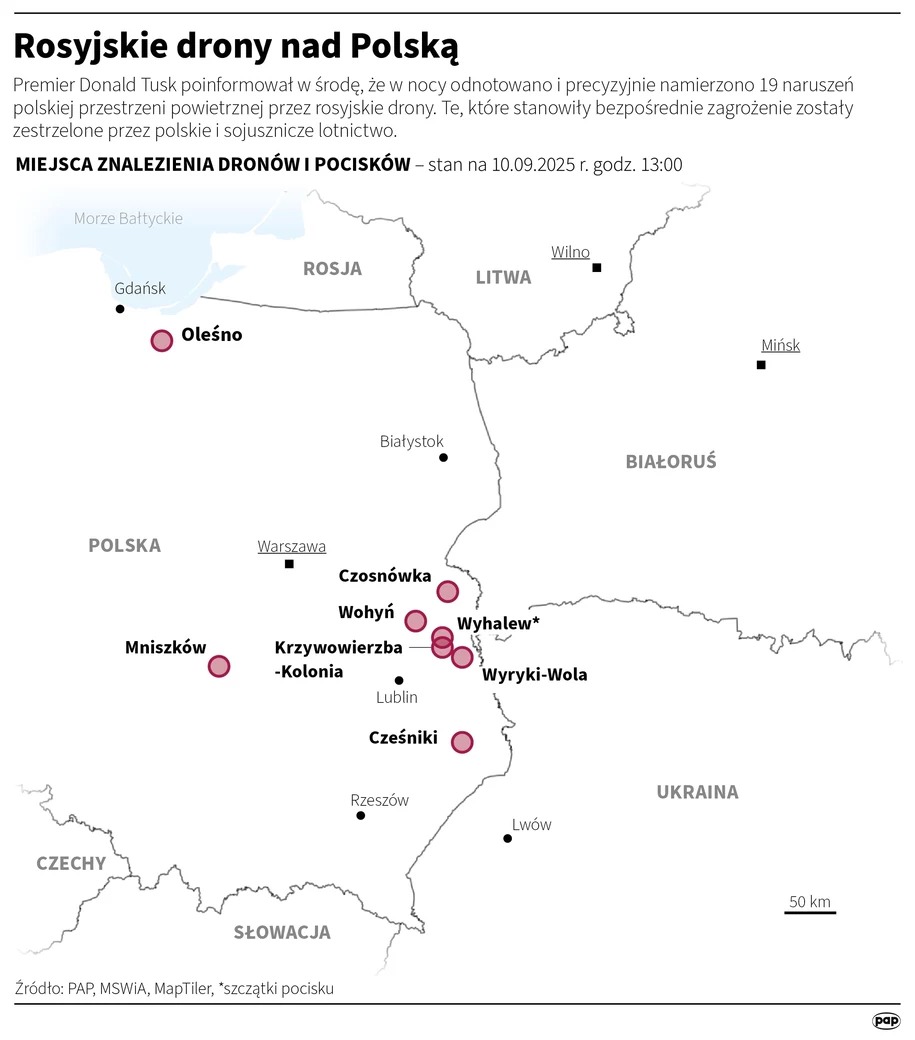
Polish authorities confirmed 19 Russian drones violated airspace on 10 September, with 16 later found on Polish territory. Most of them came down in rural or uninhabited areas across multiple voivodeships, including Lublin, Świętokrzyskie, and Warmia-Masuria. Some damaged farm buildings or landed near homes, but no casualties were reported.
Prime Minister Donald Tusk told the Sejm that 19 airspace violations were registered during the night. He emphasized that, for the first time, the attack originated not from Ukrainian airspace but from Belarus.
During the attack, Ukrainian airspace monitoring channels reported Russian drone movements to Poland via both Ukraine and Belarus, and later stated that some Russian drones returned from Poland to Ukraine.
In Cześniki, near Zamość, a drone was shot down by Polish air defense forces. Prosecutors confirmed that “Cyrillic” inscriptions were found on one of the drone’s components. Nearby, 30 drone fragments were collected, including parts made from foam-like materials and plywood.
Elsewhere, another drone landed on a residential home in Wyryki Wola in Lublin Voivodeship, damaging the roof and a car. No injuries occurred, as the elderly couple living there were tending to animals outside at the time, RMF24 says.


© Kacper Pempel/Reuters


© Wojtek Radwanski/Agence France-Presse — Getty Images
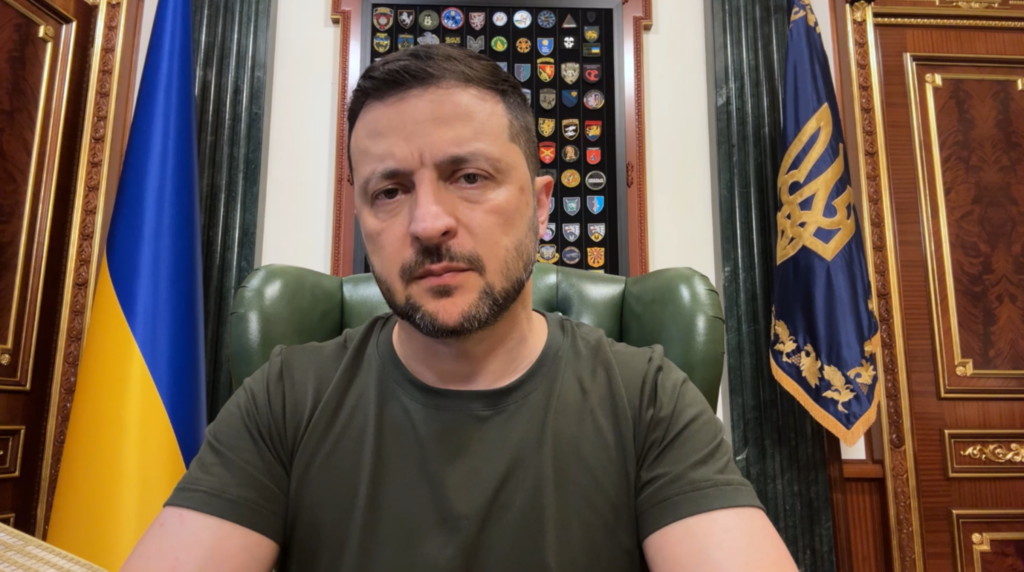

In his 10 September evening address, Ukrainian President Volodymyr Zelenskyy proposed a united, coordinated air defense strategy to protect Europe’s skies, warning that Russia’s escalating drone warfare now targets not only Ukraine but NATO territory itself.
Zelenskyy said more than 400 Russian drones—mostly Shahed explosive UAVs—and over 40 missiles struck Ukraine the previous night. Most were intercepted, but damage was still inflicted across multiple oblasts, including hits on residential homes and infrastructure.
According to him, Ukrainian forces began tracking drone movements from 1 a.m. on 10 September, as they crossed into Polish airspace from both Ukrainian and Belarusian directions.
“This movement was not an accident or a mistake – it was deliberate,” he said. “Almost two dozen drones entered Poland, and it seems that less than half of the total number came from the Ukrainian side,” he added, implying that the rest flew in from Belarus, Russia’s ally.
Calling it a “calculated Russian activity,” Zelenskyy warned that the incursion was designed to probe allied red lines:
“The Russians are testing the limits of what is possible. They are testing reactions. They are watching closely how NATO armed forces act.”
Zelenskyy said Ukraine had offered Poland support in responding to the drone breach.
“We are ready to assist with technology, crew training, and the necessary intelligence.” He stressed that only united European forces can offer real protection. “Ukraine proposes to defend airspace in a coordinated, thoughtful and joint manner. We have presented to our partners how this can be achieved.”
He stated that the proposal includes clear mechanisms to stop Russia’s escalation and prevent the war from expanding.
“The details are clear – how to prevent the war from expanding and how to stop Russia’s escalatory steps.”
He also announced upcoming defense meetings between Ukrainian and Polish defense officials.
“I instructed our military to present all the experience we have in countering drones,” Zelenskyy said.
Zelenskyy said Russia’s joint drills with Belarus, Zapad 2025, starting on 12 September, could be linked to this latest escalation.
“Joint Russian–Belarusian exercises have now begun on Belarusian territory. And this may well be part of their ‘training plan’, so to speak.”
He added that Moscow was simultaneously conducting a disinformation campaign aimed at sowing division between Poland and Ukraine.
“We see how the Russians are trying to humiliate Poland.”
He warned that the number of drones entering NATO airspace could grow if the alliance continues to respond passively.
“No one can guarantee that there won’t be hundreds of drones if there are already dozens.”
Zelenskyy emphasized that only force will make Moscow reconsider its strategy.
“Russia only listens to strength and takes only the strong into account.”
He urged Ukraine’s allies, especially the United States, to respond with action, not just statements.
“We are very much counting on a strong response from the United States.”
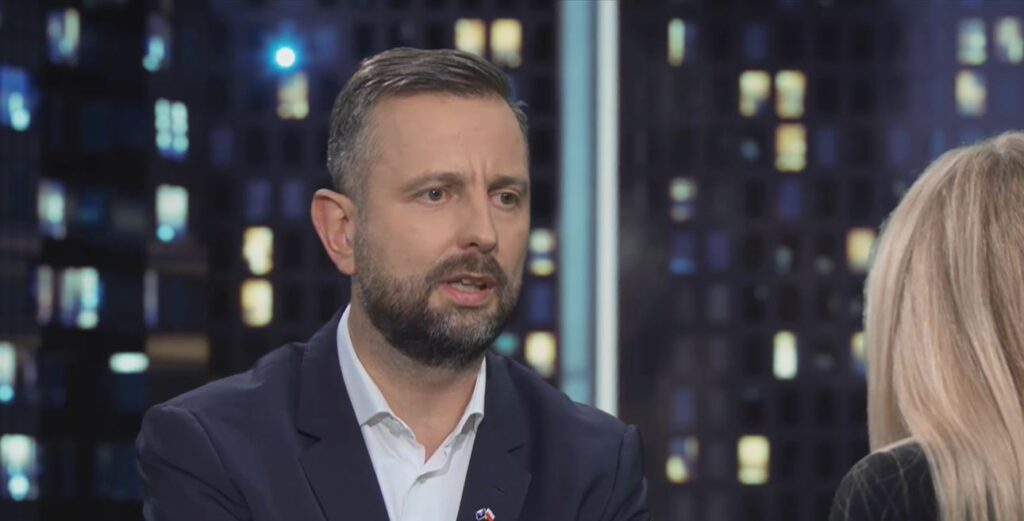

Russian drones breached Polish airspace on the night of 10 September 2025, prompting a rapid NATO response. Sweden will urgently send air defense systems and fighter jets to Poland, confirmed Defense Minister Władysław Kosiniak-Kamysz in a live appearance on TVN24.
“This day is not just about words of support, but also concrete declarations,” Kosiniak-Kamysz said on TVN24. “I just received information from Sweden’s Minister of Defense about the urgent delivery of additional support to Poland—air defense systems and aircraft.”
He stressed that allied decisions are now backed by action.
“Every such escalation makes us more united, not divided,” he said.
According to the minister, Sweden’s military aid will arrive alongside multi-level commitments from other NATO allies, delivered “within dozens of hours.”
Debris from the drones was recovered, but identifying the models remains difficult.
“They often broke into very small pieces,” Kosiniak-Kamysz stated.
He linked the incident directly to Russia’s broader ambitions.
“Russia’s strategy never changes,” he said. “They may change slogans or shapes, but they always move in one direction: destroying the civilization of the West, destroying our culture, our values, and the civilization of life.”
Support from NATO countries has been swift and tangible. The Netherlands will deliver Patriot batteries, NASAMS systems, anti-drone equipment, and 300 soldiers. Other allies—including the Czech Republic, France, the United Kingdom, Germany, Finland, Italy, and the Baltic states—have made clear commitments.
“All our allies are ready to provide support,” Kosiniak-Kamysz said. “They are making concrete declarations.”
Poland triggered consultations under Article 4 of the NATO Treaty—an uncommon move, but one the minister called “a rare and serious situation.” He referenced the 2003 NATO mission near Türkiye’s border with Iraq as a precedent for this type of coordinated defense initiative.
When asked why this particular night saw intensified Russian drone activity, Kosiniak-Kamysz pointed to the timing.
“The correlation with the Zapad exercises is evident,” he said.
Zapad 2025, the latest joint Russian-Belarusian military drills, officially begin on 12 September. Poland has already announced it will shut its border with Belarus starting midnight that day, citing security risks tied to the exercise.
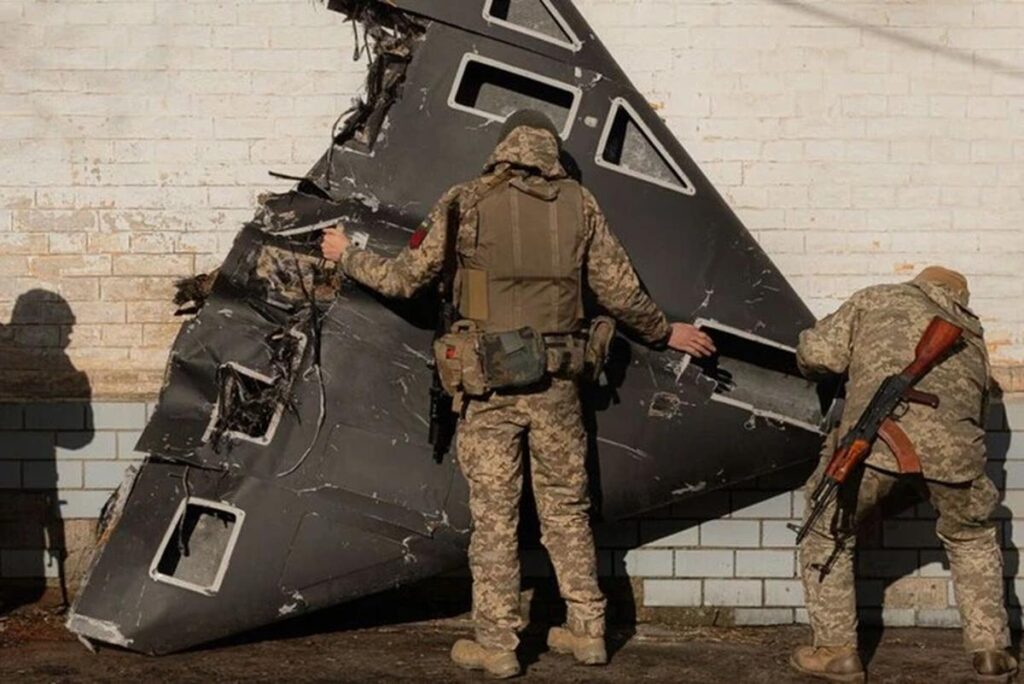

Main takeaways
Around 19 Russian drones crossed into Polish airspace during the night of 9-10 September 2025. Ukraine reports that “several dozen” Russian drones moved along the Ukraine-Belarus border and across western regions of Ukraine, “approaching targets on Ukrainian territory and, apparently, on Polish territory.”
The violation lasted over six hours: first drone entered around 21:30 GMT on Tuesday, with the last violation occurring around 04:30 GMT on Wednesday.
At least two drones used Belarusian airspace for the first time. The deliberate route programming followed corridors used in previous violations of Polish airspace.
Poland shot down four Russian drones with Polish F-16s and Dutch F-35s. Seven pieces of debris were recovered, including one that crashed into a residential building.
The telling comparison: Ukraine downs 87.4% of Russian long-range drones. Poland only shot down 17-21% of the drones that entered its airspace.

While Russia has denied intentions to target Poland, many Western officials and NATO members have deemed the breach deliberate and escalatory. Poland sees it as “an act of aggression“, and commentators labelled it a test of alliance resolve and an attempt to strain NATO’s air-defence readiness.
Poland’s Minister of Foreign Affairs Radosław Sikorski said that the drones “did not veer off course” but deliberately targeted Poland, as he called out “lies and denials” from Russia.
His assessment is supported by the drones entering from Belarus, which, as such, were not part of the complex strike package targeting Ukraine. The scale and coordination of the incursion—far larger than any previous incidents—further support the view.
Irrespective of whether this was a deliberate provocation or not, Russia fully understood the risks connected to missile and drone attacks in the close vicinity of NATO territory and still chose to carry out the strikes.
Prime Minister Donald Tusk invoked Article 4, launching NATO consultations.
It means that Poland considers its territorial integrity, political independence, or security threatened and is launching a consultation mechanism to discuss its security concerns within the North Atlantic Council. This could pave the way for joint NATO action, but it does not necessitate it.
Article 4 has been invoked only 8 times since NATO’s establishment in 1949; five were triggered by Türkiye. Poland previously invoked it in March 2014 after Russia illegally annexed Crimea.
In 2022, Poland, Lithuania, Latvia, Estonia, Romania, Bulgaria, the Czech Republic, and Slovakia triggered Article 4 over Russia’s full-scale invasion of Ukraine and concerns over potential threats to NATO’s eastern flank and possible Russian spillover. As a result, the Alliance dramatically increased its forward presence, activated defense plans, and boosted air policing missions in the east.
But this incident does not constitute significant escalation. It represents one incident in a far too long list of Russian attacks and provocations spanning the last 1,295 days of systematic hybrid warfare.
Since 2022, Russia has waged a comprehensive hybrid war against Europe. The Parliamentary Assembly of the Council of Europe adopted a resolution on 30 January 2025, stressing that “hybrid warfare tactics employed by the Russian Federation through cyber-attacks, arson, disinformation campaigns and sabotage further threaten European security.”
Russia’s acts of malignant activities include:
(1) Terrorism. The EU recognized Russia as a state sponsor of terrorism based on its illegal, unprovoked and unjustified war of aggression against Ukraine, including indiscriminate attacks against residential areas and civilian infrastructure, summary executions, abductions, sexual violence, torture and other atrocities, and its targeting of Ukrainian critical infrastructure all over the country to terrorize the population and cut access to gas, electricity, water, the internet and other basic goods and services.
This designation also reflects Russia’s responsibility for the global food security crisis, its threats to the safety and security of the whole European continent and the rules-based international order through efforts to undermine the security and safety of Ukraine’s nuclear facilities and threats of using nuclear weapons, as well as Russia’s persistent threats to employ “military-technical measures” in response to Europe’s support for Ukraine, and Russia’s weaponizing energy as a tool of geopolitical coercion.
(2) Assassinations. Russia planned to murder Armin Papperger, the CEO of a powerful German arms manufacturer. Sources said the assassination attempt was one of a series of Russian plans to assassinate defence industry executives across Europe who support Ukraine’s military efforts.
(3) Sabotage. Since the start of the full-scale war in Ukraine, Russia has significantly intensified sabotage against European countries that support Ukraine. Key statistics:
(4) Arson. Russian intelligence has been linked to a coordinated campaign of arson attacks across multiple European countries, particularly targeting commercial and symbolic facilities. Regional security agencies and NATO have raised alarms over a series of suspicious fires in warehouses, shops, and transport infrastructure—suspected to be part of a synchronized sabotage campaign by Russian proxies. This includes arson attacks in the UK, Czechia, Estonia, Germany, Lithuania, and Poland.
(5) Underwater warfare. Russia attacks pipelines and data cables in the Baltic and interferes with water supplies in Sweden and Finland. At the other end of the scale, Russian spy sensors were recently uncovered in the sea around the UK, which are believed to have been installed to track the movements of the British nuclear submarines.
Russia has long begun preparing for a war with NATO. This strategy involves monitoring and laying the groundwork for possible sabotage of underwater infrastructure. “There should be no doubt, there is a war raging in the Atlantic… We are seeing phenomenal amounts of Russian activity.”
(6) Navigation warfare. European countries “have raised concerns to international transport organisations over sharp increases in GPS and signal jamming and spoofing in recent months as well as an increase in Russian electronic warfare (EW) installations in border areas.” Key impact:
(7) Cyberattacks. Russian hackers have intensified their attacks against the UK and other NATO allies providing military aid to Ukraine. Russia has targeted the media, telecommunications, political and democratic institutions, and energy infrastructure. Russia systematically conducts cyberattacks 48 hours before physical missile strikes.
(8) Information warfare. A recent Polish report highlighted a deliberate Russian strategy of undermining trust in democratic institutions, NATO, and the EU. Polish analysts estimated Russia spends $2–4 billion annually on information operations, framing them as a systematic, multi-channel campaign.
(9) Election interference. “Russia leads the charge in spreading fake articles and videos aimed at influencing the US presidential election,” a statement from the National Intelligence, the FBI, and the Cybersecurity and Infrastructure Security Agency (CISA) said. On 6 December 2024, the Romanian Constitutional Court annulled the results of the first round of the presidential election, due to a coordinated foreign manipulation effort.
(10) Maritime violations. Russia actively restricts freedom of navigation, particularly in strategic maritime zones like the Black Sea, the Baltic Sea, and parts of the Arctic, often using military pressure, administrative controls, or hybrid tactics.
Russia frequently uses “Notice to Mariners” (NOTMARs) and similar maritime advisories—such as Navigational Warnings (NAVWARNs)—as means, often in ways that exceed international legal norms. These actions challenge international maritime law, especially the principles set out in the United Nations Convention on the Law of the Sea (UNCLOS)—even though Russia is a signatory.
(11) Airspace violations. Romania has detected Russian drones within its borders repeatedly. Only Belarus—Moscow’s ally—attempts to shoot down drones. Moldova, Romania, Poland, and Lithuania have all failed to intercept drones.
In September 2021, the EU Parliament concluded Russia is waging hybrid war against EU and NATO members. No NATO member has invoked Article 4 over this systematic campaign.
While NATO acknowledges cyberattacks can trigger Article 5, it refuses to act on Russia’s campaign of terrorism, assassinations, sabotage, arson, infrastructure attacks, navigation warfare, cyberattacks, information warfare, election interference, maritime violations, and repeated airspace violations.
The Alliance has utterly failed to deter Russian aggression. NATO failed to act when war started in 2014, failed again in 2022, and during The Hague Summit even delayed introducing 5% defense budget requirements to 2035—5-8 years after it might be at war with Russia.
Russia has succeeded in cognitive warfare, pacifying the world’s strongest military alliance through fear that action might trigger broader confrontation. The confrontation is already taking place.
Reactions to Russian aggression will not escalate the war. NATO’s failure to respond has shown that inaction escalates the war. Appeasement fuels aggressor risk-taking, increasing the chances of strategic miscalculations that lead to World Wars.
To ensure strategic clarity and secure NATO territory, the Alliance should:
Unfortunately, NATO lacks the courage to stop Russian aggression. This drone “attack” will mark yet another step on the escalation ladder as the Alliance remains trapped in “Boiled Frog Syndrome.”
Editor’s note. The opinions expressed in our Opinion section belong to their authors. Euromaidan Press’ editorial team may or may not share them.
Submit an opinion to Euromaidan Press
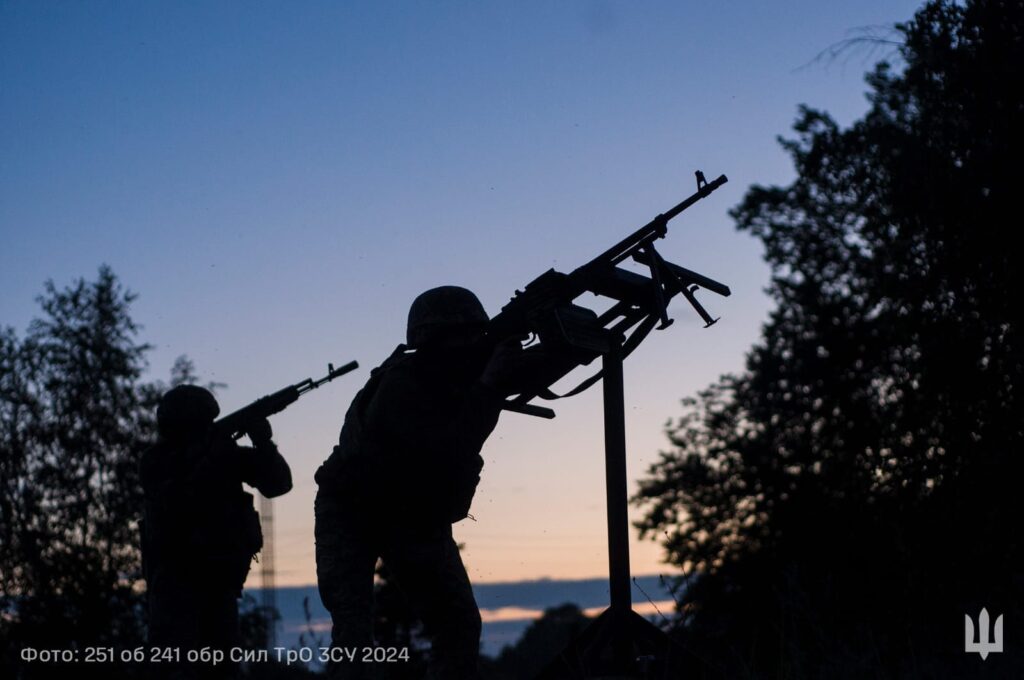

Kyiv extends a helping hand to Poland. Ukraine has offered Warsaw the necessary assistance in countering Russian drones, President Volodymyr Zelenskyy says.
This came after Moscow attacked Poland on 10 September using 19 drones. Only four of them were shot down, despite NATO scrambling its most powerful aircraft, including F-16s and F-35s.
The attack occurred just as Western leaders, including the US, continue working on security guarantees for Ukraine, aimed at protecting the country from Russian strikes, including drone attacks.
Ukraine does not possess modern fighter jets, yet during the same time frame, it managed to shoot down 380 out of 415 drones launched by Russia.
The question remains: how to force Russia to end the war against Ukraine and stop attacking NATO countries?
“No one can guarantee that there won’t be hundreds of drones if there are already dozens. Only joint European forces can provide real protection. We are ready to help with technology, crew training, and the necessary intelligence,” Zelenskyy stressed.
According to Zelenskyy, joint Russian-Belarusian exercises “Zapad-2025” have begun on Belarusian territory, and the attack on Poland may be part of this training scenario.
The program of the drills reportedly includes a rehearsal of an attack on Poland and even the simulation of a nuclear strike.
Despite the attack on a NATO member state, US President Donald Trump did not announce any new sanctions against Moscow or present a clear plan to counter Russia.
“Unfortunately, as of now, Russia has not received a tough response from global leaders to what it is doing,” Zelenskyy said.
According to him, with this attack, Russia is testing the limits of what is possible and probing the West’s reaction.
“They are recording how NATO armed forces act, what they can do and what they cannot do yet,” the Ukrainian president added.
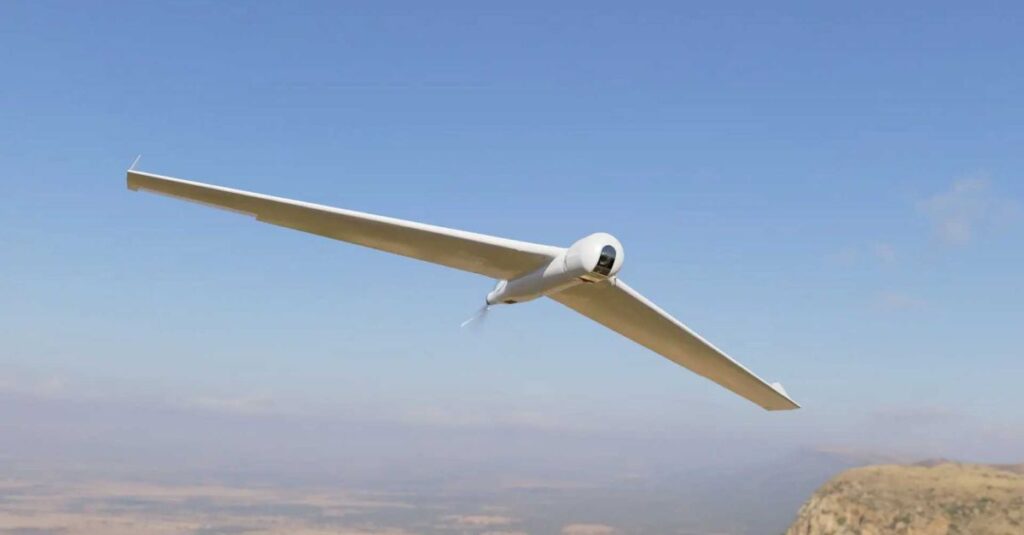

Kyiv warned Poland about the Russian drone threat before the attack occurred. On the night of 10 September, nearly two dozen Russian drones may have entered Polish airspace, although this figure is not final, Ukrainian President Volodymyr Zelenskyy said.
Russia launched 415 drones of various types and over 40 cruise and ballistic missiles against Ukraine. One person was killed and several were injured. Ukrainian air defenses destroyed more than 380 drones using mobile fire groups across the country. At the same time, part of the drone swarm crossed into Poland.
This incident marked the first time since Russian drones massively violated the territory of a NATO member state and prompted the country to down them with strategic aviation.
“Ukrainian forces informed the Polish side through the appropriate channels about the movement of Russian drones. Around 00:50 Kyiv time, the first crossing of the Ukrainian-Polish border by a Russian drone was recorded,” the Ukrainian president noted.
At least two drones that entered Poland used Belarusian airspace. Meanwhile, dozens of other drones moved along the Ukraine-Belarus border and in western regions of Ukraine, approaching Ukrainian and potentially Polish targets.
Zelenskyy emphasized that Ukrainian defenders destroyed more than 380 Russian drones of various types, including at least 250 Shaheds.
“The number of Russian drones that crossed into Polish territory and penetrated deeply may be higher than previously reported. We are checking,” the Ukrainian president said.
Ukrainian forces continue to analyze debris to clarify drone types. The president stressed that only joint and coordinated action with allies can ensure reliable airspace protection.
Meanwhile, the Russian Ministry of Defense denied involvement in the attack.
The incident prompted Poland to appeal to NATO, which activated Article 4 of the North Atlantic Treaty. This allows consultations regarding threats to territorial integrity and security, but does not automatically trigger a military response as Article 5 does. Polish F-16s and F-35s were scrambled to intercept drones, though most threats were neutralized by Ukrainian air defenses.
The attack happened in the midst of discussions by European and American allies on security guarantees for Ukraine.
Joint Russian-Belarusian military exercises, “Zapad-2025,” are currently underway in Belarus, with the active phase planned for 12–16 September. During these exercises, scenarios include simulated attacks on Poland and nuclear weapons deployment, UkrInform reports.
Kyrylo Budanov, the head of Ukraine’s Main Intelligence Directorate, stated that the active phase will involve serious information pressure, accompanied by staged leaks and information provocations.


Moscow denies targeting Poland after drones enter NATO airspace. The Russian Ministry of Defense stated that no targets on Polish territory were intended, responding to reports of 19 Russian drones violating Poland’s airspace on 10 September for approximately six hours.
Poland deployed F-16 and F-35 jets, shooting down 4 out of 19 Russian drones, while others fell on Polish soil, triggering NATO’s Article 4 consultations, which allow member states to hold urgent talks when a country’s territorial integrity is threatened.
Polish Prime Minister Donald Tusk has described the incident as an “unprecedented moment” for both the country and the Alliance, marking the first massive attack on NATO territory.
The Russian Ministry of Defense has confirmed it launched a massive strike on Ukraine “with high-precision long-range weapons from land, sea, and air, as well as with strike drones.”
They are targeting defense-industrial enterprises in Ukraine in Ivano-Frankivsk, Khmelnytskyi, Zhytomyr oblasts, as well as in Vinnytsia and Lviv.
“These facilities were producing and repairing armored and aviation equipment for the Armed Forces of Ukraine, engines, electronic components, and long-range drones,” said the Russian Defense Ministry.
It added that in Lviv, workshops at the Lviv Armored Plant and Lviv Aircraft Plant were hit, “where armored vehicles were repaired and modernized and long-range UAVs and combat aircraft were maintained.”
Russia launched 415 drones of various types and over 40 cruise and ballistic missiles against Ukraine. One person was killed and over 30 were injured. Ukrainian air defenses destroyed more than 380 drones across the country.
Earlier, Kremlin Spokesperson Dmitry Peskov commented the attack on Poland by saying that “We do not wish to in any way comment on this. It is outside our competence,” referring to the Ministry of Defense.
He added that the EU and NATO “accuse Russia of provocations daily,” and that Western institutions “lack evidence to support their accusations.”
In 2025, Russia’s Foreign Intelligence Service Head Sergey Naryshkin accused NATO of escalating military activity near Russia’s borders. He warned that Poland and the Baltic states would be the first to suffer in the event of a war between Moscow and the Alliance.
Meanwhile, the Belarusian Ministry of Defense claimed the Russian drones attacking Poland had “lost their way.”
Belarus reportedly alerted Poland about drone movements in its airspace. First Deputy Defense Minister Pavel Muraveiko told The Moscow Times that some of the “lost” drones were destroyed by Belarusian air defenses over its territory.
Muraveiko explained that Belarusian forces “exchanged information on aerial and radar activity” with Poland and Lithuania during the night of 10 September, allowing Polish forces to respond quickly by scrambling jets.
He added that drones from both Russia and Ukraine had been monitored as some lost course due to electronic warfare measures.
Belarus has become effectively a Russian satellite in recent years, providing its territory for military exercises, including the large-scale “Zapad-2025” drills, rehearsing joint operations against NATO and Ukraine. President Alexander Lukashenko has repeatedly expressed support for Russia’s war in Ukraine and closely coordinates with the Kremlin militarily.
Russia, Belarus to rehearse attack on Poland and nuclear strike during Zapad-2025 drills
Foreign Minister Andrii Sybiha said Ukraine’s and its partners’ air defense systems can and must operate together to intercept Russian missiles and drones.
Sybiha emphasized that Ukraine is ready to provide expertise, experience, technology, and other forms of assistance to ensure reliable security and an effective response to Russian threats.
“Together, we will not allow Russian missiles and drones to fly further into Europe,” he added, calling for rapid and decisive action to send Moscow a clear signal of unity and strength.
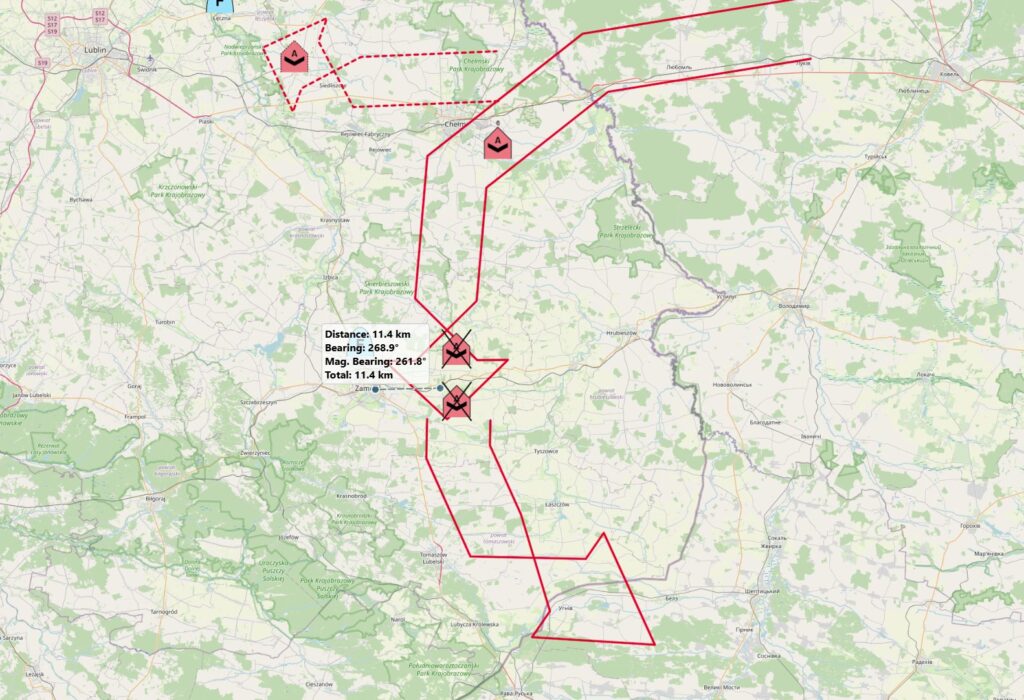

Polish forces shot down more than a dozen Russian drones that violated the country’s airspace during a massive attack on Ukraine early on 10 September, marking the first time NATO has engaged Russian military assets over alliance territory since Moscow’s full-scale invasion began.
According to Poland’s Operational Command, the incident occurred between 1:00 and 3:00 am as part of Russia’s broader aerial assault targeting Lutsk and Lviv in Ukraine, cities in the western part of Ukraine. Russia launched 415 Shahed-type attack drones in what Ukraine described as a massive coordinated strike that also involved Kh-101 and Kalibr missiles.
Polish OSINT analyst Jarosław Wolski reported that the drones entered Polish airspace near Dorohusk-Dubienki and followed a curved path southward, approximately 8 kilometers east of Chelm toward Zamosc and Tomaszow Lubelski. The unmanned aircraft flew roughly 10-12 kilometers east of both cities before continuing south.
“At least two drones were shot down in the vicinity of Czenski-Niewierki, approximately 15 kilometers east of Zamosc,” according to the Polish Operational Command. Unconfirmed reports from observers suggested several drones may have been directed toward Lublin, though this remained unverified.
The drones exited Polish territory several kilometers north of Hrebenne, following what appears to be a deliberate route that mirrors previous incursions into Polish airspace.
“Our air defences were activated and successfully ensured the defence of NATO territory, as they are designed to do. Several Allies were involved alongside Poland,” NATO Secretary General Mark Rutte said in an official communication.
The incident prompted Poland to temporarily close four airports: Warsaw Chopin Airport, Warsaw-Modlin, Rzeszow-Jasionka, and Lublin. Fighter jets were scrambled early on 10 September as more than a dozen drones entered Polish airspace, with NATO allies participating in the defensive operation.
European leaders have condemned the violation, with Poland invoking NATO Article 4, which allows members to request consultations when their territorial integrity or security is threatened.
Military analysts suggest the drone incursions were not accidental. The flight path closely follows routes used in previous violations of Polish airspace, indicating deliberate programming rather than navigation errors or electronic warfare interference.
“Russians deliberately set the flight route through Polish territory,” according to the OSINT research, InformNapalm. The route appears designed to bypass Ukrainian air defenses and electronic warfare systems while testing NATO’s response capabilities.
OSINT researchers have established that Russia equipped some drones with Polish and Lithuanian SIM cards, demonstrating the premeditated nature of these hybrid operations. The timing coincides with Russia’s planned “Zapad-2025” military exercises, suggesting the incursions serve as reconnaissance for Polish and NATO defensive capabilities.
This marks the first direct engagement between NATO forces and Russian military assets since the invasion began. The incident represents an escalation in Russia’s testing of Western resolve, coming after Poland’s decision to close its border with Belarus.
Military sources anticipate an increase in such incidents as Russia conducts its Zapad exercises, using the operations to study NATO decision-making processes and air defense responses. The violations are expected to impact civilian aviation and regional logistics, with Polish company stocks already showing negative reactions.
The successful interception demonstrates NATO’s defensive capabilities while raising questions about future responses to similar violations of alliance airspace.
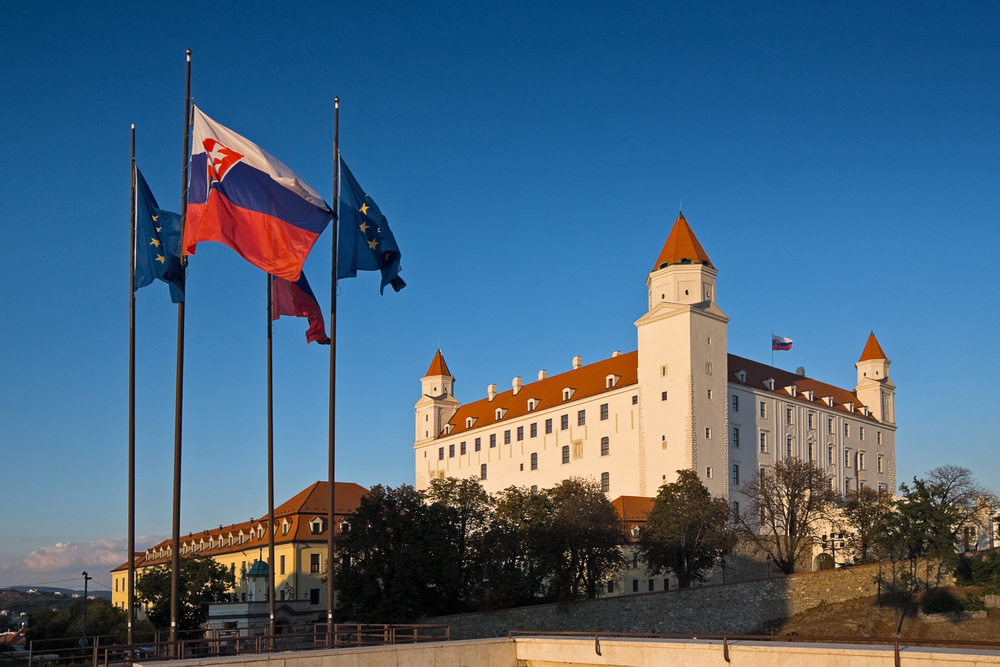

Russia’s attack on Poland, during which drones violated the country’s airspace for several hours, shocked not only Warsaw but also NATO neighbors. Slovak President Peter Pellegrini has openly admitted his country is now “defenseless” against such a threat, Polsat News reports.
Russia launched 415 drones of various types and over 40 cruise and ballistic missiles against Ukraine. One person was killed and over 30 were injured. Ukrainian air defenses destroyed more than 380 drones using mobile fire groups across the country. At the same time, 19 drones crossed into Poland.
Pellegrini made the statement during his visit to Japan. He stressed that Slovakia lags far behind in building a modern air defense system, leaving the country vulnerable, Teraz reports.
“We are defenseless today. If a similar situation happened in Slovakia, people would only have to hope that drones don’t fall on residential houses,” he said.
The president acknowledged that Slovakia lacks effective response capabilities. Even a technical malfunction or course deviation could cause drones or missiles to crash on Slovak territory.
“We cannot immediately react in case of a violation of our airspace, as it happened in Poland,” he added.
The head of state called the incident in Poland “an important warning and a raised finger” for all NATO countries. He argued that Slovakia must urgently build its air defense system and integrate it into Europe’s security architecture.
Foreign Minister Juraj Blanár described the Russian drone intrusion into Poland as an escalation of the conflict. He confirmed solidarity with Warsaw and backed its decision to initiate NATO consultations under Article 4.
At the same time, Blanár called for diplomacy, expressing hope that peace talks launched by US President Donald Trump could bring an end to Russia’s war against Ukraine.
“I want to believe that the drones that entered Poland were not meant to attack it, but were only supposed to land in Ukraine,” he said.
Interior Minister Matúš Šutaj Eštok reacted more cautiously, recalling that in the past, a similar case with a “Russian missile” in Poland turned out to be a Ukrainian mistake.
For at least a year, Slovak Prime Minister Robert Fico has repeatedly claimed that Slovakia would provide neither financial nor military support to Ukraine in its war with Russia. Additionally, Foreign Minister Juraj Blanár expressed the view that the West should forgive Russia for the killing of more than 13,000 civilians, not including Mariupol, where the number of victims could be as high as 100,000.
The Polish incident was part of Russia’s large-scale strike on the night of 10–11 September. Moscow launched 415 drones and more than 40 cruise and ballistic missiles at Ukraine. Most of the drones were downed by air defense, but one person was killed.
In Poland, the attack lasted for six hours. Prime Minister Donald Tusk reported that 19 drones were used, some launched from Belarus. Polish forces managed to shoot down only three to four drones, while the rest crashed on Polish soil.
Polish government Spokesperson Adam Szłapka has confirmed that NATO had activated Article 4. Consultations among allies have already taken place.
While Article 4 does not mandate an automatic military response like Article 5, it allows member states to consider additional security measures, including troop deployments and reinforcement of air defense systems.
For Russia, this incident was a way to test NATO’s resolve. For Poland’s neighbors, it was a painful reminder that the war against Ukraine directly threatens their own security.
Earlier, a poll revealed that 14% of Slovaks surveyed openly want to join Russia, and another 18% consider this possibility.
The idea is most supported by students and the unemployed, which, according to experts, rather reflects economic instability and disappointment with the country’s Western course than genuine loyalty to the Kremlin.


In the night of 10 September, Russia’s massive attack on Ukraine spilled beyond Ukrainian skies. According to President Volodymyr Zelenskyy, nearly Russian enemy drones may have entered Polish airspace. This unprecedented incident forced Warsaw to call on NATO allies and activate Article 4 of the North Atlantic Treaty.
Russia launched 415 drones of various types and over 40 cruise and ballistic missiles against Ukraine. One person was killed and several injured. Ukrainian air defenses destroyed more than 380 drones using mobile fire groups across the country. At the same time, part of the drone swarm crossed into Poland.
Prime Minister Donald Tusk has confirmed that Russia used 19 drones in an attack lasting six hours, calling it a serious test of Poland’s defense, Suspilne reports. F-16 and F-35 fighter jets were scrambled, but only 3–4 drones were intercepted, while the rest fell on Polish territory.
Defense Express experts, analyzing debris, have suggested the drones could have been Russian “Gerbera” models, primitive foam UAVs that can carry reconnaissance equipment or small explosive payloads of up to 5 kg. While often used as decoys, this time they may have served another purpose.
The drones were spotted over multiple regions: north of Lublin, near Stalowa Wola with its defense industries, west of Białystok, and even close to Łódź.
Analysts note that their flight paths coincided with key Polish air defense sites, including long-range radar posts in Roskosz (NUR-12M), Labunie (RAT-31DL), and Szypłiszki near the strategic Suwałki Gap, NATO’s link between the Baltic states, the rest of the Alliance, and Russia’s Kaliningrad Oblast.
Experts warn the strike may have been a reconnaissance mission, probing Poland’s air defense ahead of possible future scenarios.
Meanwhile, Ukrainian President Volodymyr Zelenskyy stresses that such incidents prove no European country is safe without joint action.
“Ukraine is ready to expand cooperation with partners for reliable air defense. Not only information-sharing, but real joint actions in the sky must guarantee the security of neighbors. Russia must feel that Europeans know how to defend themselves,” he claims.
Polish government spokesman Adam Szłapka told Polsat News that Warsaw officially invoked Article 4, and allies agreed to activate it.
Article 4 provides for urgent consultations when the territorial integrity, political independence, or security of a member state is threatened. Unlike Article 5, it does not trigger automatic military action, but it opens the way for reinforced defense measures, troop deployments, and new security guarantees.
For Moscow, this attack could be a test of the West’s reaction. For NATO, it is another reminder that Russia’s war against Ukraine directly threatens European allies.
The attack on Poland is an unmistakable threat to NATO. At the same time, US President Donald Trump has so far made no public comments or official statements regarding Russia’s drone incursion into Polish airspace. Moreover, he has not yet implemented new sanctions on Moscow in response to its attacks on the top governmental building in Kyiv, as he previousely claimed.


© Jakub Orzechowski/Agencja Wyborcza.Pl, via Reuters


© Finbarr O'Reilly for The New York Times


NATO is not treating Russia’s deliberate drone incursion into Polish territory as an attack, a NATO source told Reuters. This unprecedented revelation comes after a large overnight operation involving both Polish and NATO aircraft to intercept incoming Russian drones.
Ukraine’s Air Force reported that Russia launched 415 drones and 43 missiles in total during the overnight assault. Ukrainian President Volodymyr Zelenskyy says at least eight Shahed explosive drones were “aimed toward Poland.” Calling it “an extremely dangerous precedent for Europe,” he urged a strong, united response from Ukraine’s partners in Europe and the United States.
Ukrainian airspace monitoring channels reported that some of the Russian drones that initially entered Poland later returned to Ukraine.
Despite clear indications of intent, NATO is not treating the airspace violation as an act of aggression, a source within the Alliance told Reuters. The source added that initial indications suggested an intentional incursion of six to ten Russian drones overnight on 10 September. NATO radars tracked the drones, and a coordinated operation involving Polish F-16s, Dutch F-35s, Italian AWACS surveillance planes, and mid-air refueling aircraft was launched.
“It was the first time NATO aircraft have engaged potential threats in allied airspace,” the source said.
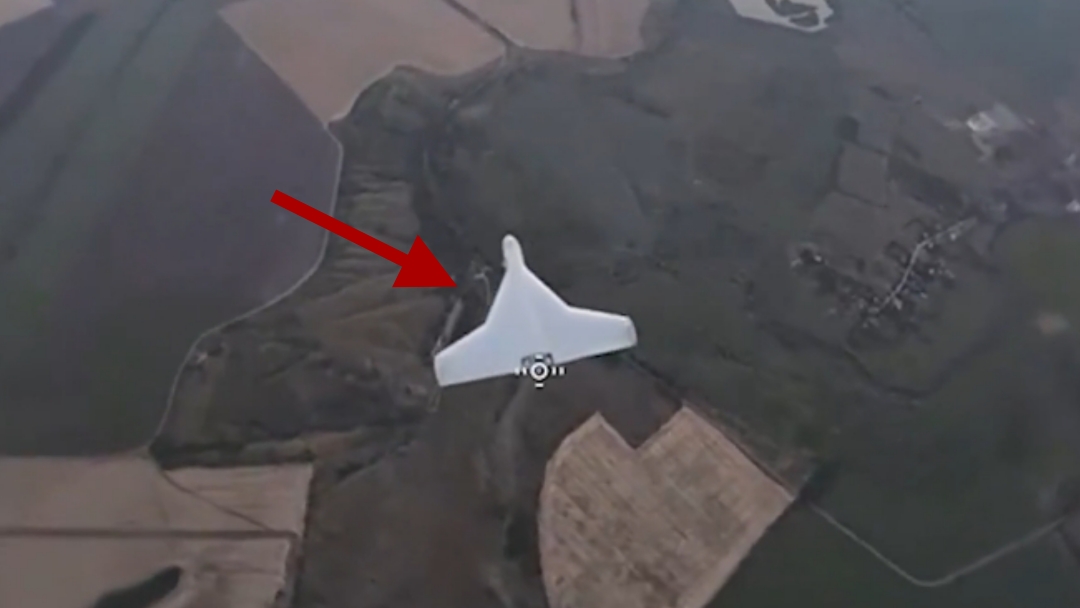
European Commission President Ursula von der Leyen described the drone strikes as “a reckless and unprecedented violation of Poland and Europe’s airspace.” Speaking to the European Parliament in Strasbourg, she declared full European solidarity with Poland and announced a new Qualitative Military Edge program to boost Ukrainian defense capabilities.
French President Emmanuel Macron labeled the airspace breach “simply unacceptable.” In a post on X, he promised to raise the issue with NATO Secretary General Mark Rutte, stating, “We will not compromise on the security of the Allies.”
British Prime Minister Keir Starmer called Russia’s drone attack “extremely reckless” and said it highlighted “Putin’s blatant disregard for peace.” He confirmed direct communication with Polish Prime Minister Donald Tusk and thanked NATO and Polish forces for their swift response.
European Union foreign policy chief Kaja Kallas said that early indications suggested the drone entries into Polish territory were intentional.
Prime Minister Donald Tusk said 19 drones entered Polish airspace overnight, with many of those flying in from Belarus. According to Tusk, four were probably shot down, with the last interception occurring at 6:45 a.m. Poland’s military command stated that more than 10 drones had been tracked and that those posing a threat were neutralized.
The military described the repeated violations as “an act of aggression.” Airports in Warsaw, Lublin, and two other cities were closed during the threat. Polish authorities urged residents in Podlaskie, Mazowieckie, and Lublin regions to remain indoors. NATO air command and Dutch F-35s provided assistance throughout the operation.
Czech Prime Minister Petr Fiala said the incident was “a test of the defense capabilities of NATO countries.” He called it deliberate and said Putin’s regime “systematically probes how far it can go.” Fiala reaffirmed Czech solidarity with Poland and warned against voices downplaying Russia’s aggression.
Lithuanian foreign minister Kestutis Budrys, however, told Reuters that there was no confirmed evidence yet that the drone strike was intentional. However, he stressed that Russia remains responsible for keeping its drones out of NATO territory.
Russia and Belarus, longtime anti-Ukrainian allies, dismissed the accusations. Russia’s chargé d’affaires in Poland, Andrey Ordash, was summoned by the Polish foreign ministry. He told Russia’s RIA state news agency, “We see the accusations as groundless,” claiming Poland had presented no evidence linking the Russian drones to Russia.
Belarusian Chief of the General Staff Major General Pavel Muraveiko attempted to shift blame for Russia’s deliberate attack on Poland toward Ukraine. He claimed Belarus had allegedly shot down drones that had strayed into its airspace due to Ukrainian electronic interference. Without specifying their origin, he claimed that both Poland and Lithuania had been warned about the drones’ approach.


A Russian drone fell on a residential building in the village of Wyryki Wola near the border with Belarus during night’s unprecedented breach of Polish airspace on 10 September, Polish media reported.
According to the Polish Prime Minister, about 19 intrusions into Polish airspace were recorded, a significant number of drones came from Belarus. Some four drones were reportedly shot down.
The unmanned aircraft damaged the roof of a house and a car parked nearby, according to RMF FM journalist Dominik Smaga. No fire broke out and no one was injured in the incident.
Fire brigade and other emergency services arrived at the scene. Authorities have not yet determined whether the building was struck by one of the drones shot down by Polish forces or by an aircraft that evaded interception.
Local authorities cordoned off the area and asked residents to remain indoors. Wyryki municipality head Bernard Błaszczuk decided to close the local primary school indefinitely as a precautionary measure.
The incident occurred after Poland’s Operational Command of the Armed Forces announced that Russian drones had “repeatedly violated” Polish airspace during Moscow’s overnight attack on Ukraine. The military described it as an “unprecedented” breach that constituted “an act of aggression” creating “real threats to the security of our citizens.”
Defense Minister Władysław Kosiniak-Kamysz confirmed that “drones that could pose a threat were shot down.” He later revealed that more than a dozen Russian drones had crossed into Polish territory.
Multiple drone discoveries followed across the country. Lublin police found a damaged drone in a field near Czosnówka around 5 am, with Cyrillic inscriptions visible on the aircraft. In the Zamość region, authorities recovered a stabilizer from a drone shot down between the villages of Cześniki and Niewilków around 3 am.
Two additional drones were located in Parczew county – one in Krzywowierzba Kolonia village and another in Wychalew village. A foreign-origin drone was also discovered near Mniszków in the Łódź region on undeveloped land.
Prime Minister Donald Tusk convened an emergency government meeting at 8 am in response to the airspace violations. President Karol Nawrocki scheduled a consultation at the National Security Bureau with the prime minister’s participation.
The Polish military’s decision to actively intercept the drones marked a significant escalation from previous incidents when Warsaw typically monitored foreign aircraft without engaging them directly.
During the overnight assault on Ukraine, Russia involved 415 strike drones of Shahed, Gerbera and other types, and 43 missiles of ground, air and sea-based launch.
One person died and nine others were injured in a Russian combined strike on Ukraine during the night of 10 September, according to regional officials across multiple oblasts.
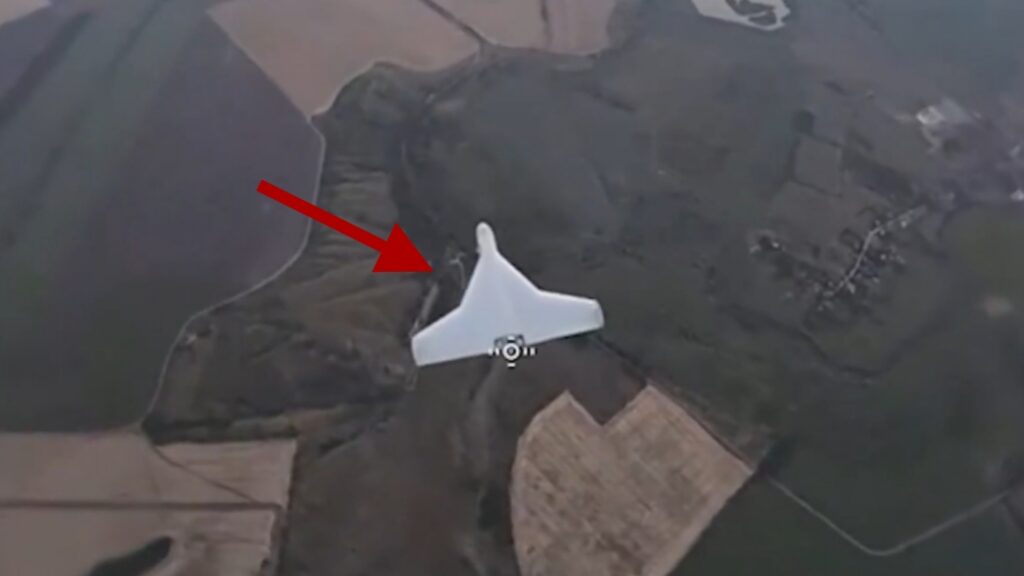

Poland’s Operational Command confirmed that Russian drones violated the country’s airspace during a massive missile-drone attack on Ukraine on the night of 10 September.
This marks the first serious attack on a NATO member country since Russia’s full-scale invasion began against Ukraine. Warsaw called this the incident an “act of aggression.”
“As a result of today’s attack by the Russian Federation on the territory of Ukraine, an unprecedented violation of Polish airspace by drone-type objects occurred. This is an act of aggression that poses a real threat to the security of our citizens,” the Polish Armed Forces Operational Command reported on X.
Polish military officials confirmed they intercepted and destroyed multiple drones that crossed into national territory.
Prime Minister Donald Tusk confirmed “repeated violations” of Polish airspace and reported that military forces used weapons against the objects. “I am in constant contact with the president and defense minister. I received a direct report from the operational commander,” Tusk wrote on X.
Defense Minister Władysław Kosiniak-Kamysz announced that Poland maintains “constant contact with NATO command” regarding the UAV attack. He confirmed that “aircraft used weapons against enemy objects” and activated Territorial Defense Forces for ground searches of downed drones.
The incident prompted Poland to close four airports: Warsaw Chopin Airport, Warsaw-Modlin, Rzeszów-Jasionka (closest to Ukraine), and Lublin, according to BBC reports. Aviation authorities issued NOTAM notices stating airports were closed “due to unscheduled military activity within the framework of ensuring state security.”
Polish officials described the violations as “unprecedented” and warned citizens in the most dangerous regions—Podlaskie, Mazowieckie, and Lublin voivodships—to remain indoors while the military operation continued.
The Ukrainian publication Nikolayevsky Vanek reported that Ukraine tracked “more than 10 drones that headed to Poland and never returned” during the night attack.
US Secretary of State Marco Rubio confirmed he received information about Russian drones over Polish territory, telling CNN reporters “Yes” when asked if he was briefed about the incident during a Tuesday evening dinner with President Donald Trump.
Republican Congressman Joe Wilson called the drone attack on Poland “an act of war” that cannot be ignored, while both Republican and Democratic lawmakers urged Trump to respond to what they characterized as an unprecedented violation of NATO member airspace.
Poland scheduled an emergency government meeting for 8:00 am local time (9:00 am Kyiv time) and issued warnings to Territorial Defense Forces members about immediate reporting requirements in several regions. In areas marked red on operational maps—covering Podlaskie, Mazowieckie, Lublin, and Subcarpathian voivodships—reporting time was reduced to six hours, while “yellow” regions required readiness within 12 hours.


© Kacper Pempel/Reuters


Polish publications Polsat News and RMF24 report that a drone with “Cyrillic” inscriptions crashed on Polish territory near the Belarusian border on the evening of 7 September. The incident occurred close to Poland’s border crossing in Terespol, raising new alarms about Russian drone incursions linked to its war in Ukraine.
The drone was likely one of the 605 explosive and decoy drones Russia launched at Ukraine on 7 September—if it indeed crashed that night and wasn’t linked to an earlier incursion undetected by Polish authorities.
The drone fell around 300 meters from the Polish border checkpoint in the village of Polatycze, in Lublin Voivodeship, according to the local prosecutor’s office. The nearest residential buildings were just 500 meters from the crash site, Polsat reported, citing the prosecutor’s office. Authorities confirmed that the object did not explode upon impact, but that fuel ignited after the crash. RMF24 says no one was injured.
Agnieszka Kępka, spokesperson for the Lublin District Prosecutor’s Office, stated that border guards discovered the drone wreckage at approximately 19:50 the next day. They have already been questioned as witnesses. A civilian later reported hearing the sound of the drone.
The drone had “Cyrillic” text on its components and numeric markings on others. It appeared to be made of lightweight styrofoam-like material. Investigators are now cataloging every fragment on-site before the debris is transferred for forensic analysis.
The military department of the Lublin District Prosecutor’s Office is leading the investigation in cooperation with the Military Police. Authorities secured 12 major components and hundreds of smaller parts, many made of styrofoam. While investigators say the drone was likely unarmed, its material and structure resemble Russian-made Gerbera drones, capable of carrying explosive devices.
No details have been released about whether a Polish military radar tracked the drone. RMF24 reports that prosecutors do not yet know the time or direction of its entry into Polish airspace. The visible impact mark in the field allowed officials to pinpoint the crash site, which lies in a cornfield near Terespol. Military investigators are expected to assess the drone’s model and origin.
Biała Podlaska police confirmed receiving a report from the local border guard station just before 22:00, not mentioning 7 September as the crash date. Officers secured the crash site and alerted all relevant agencies, including the Regional Prosecutor’s Office in Biała Podlaska. Authorities reiterated that no residents were harmed and that the wreckage poses no immediate threat.
On 7 September, a different unmanned aerial vehicle fell in the village of Majdan-Sielec, near Zamość. Investigators from the Zamość District Prosecutor’s Office said it likely crashed due to fuel exhaustion.
According to RMF24, the landowner where the first drone crashed noted the presence of what looked like a camera module. Authorities confirmed the device was being analyzed by forensic experts.

Ukrainian airspace monitoring channels on Telegram reported on 7 September that a Russian drone had crossed Ukraine’s Volyn and was headed toward Zamość, a Polish city located 150 km south of the crash site.
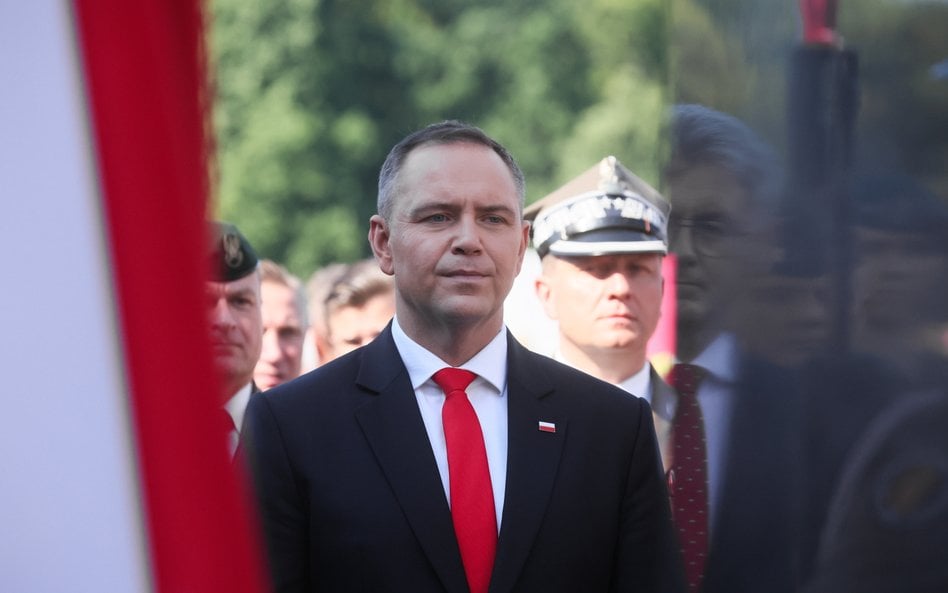

Polish President Karol Nawrocki declared discussions about Ukraine’s future membership in the European Union and NATO “premature,” prompting a swift response from Ukraine’s Foreign Ministry that such talks are strategically necessary.
In an interview with Lithuanian broadcaster LRT, Nawrocki explained his position on NATO membership: “I believe that a country at war cannot join NATO, because that would mean that Poland and Lithuania would also be at war, so this discussion should be postponed – it’s simply impossible.”
Regarding EU accession, the Polish president referenced the lengthy membership processes of Poland and Lithuania, which lasted “many years” and required consideration of “many factors, including impact on economy and business sectors.”
“Of course, I believe that Ukraine should be part of civilization in the future, if we want to look for adjectives, let’s say Latin or Western civilization. However, in my opinion, today’s discussion about Ukraine’s membership in the European Union is premature,” Nawrocki said, adding that he personally does not participate in such discussions.
When Russia launched its full-scale invasion against Ukraine, Poles were the first to provide Ukraine with significant assistance in military equipment and accepted a million Ukrainians into Poland.
Ukraine’s Foreign Ministry responded to Nawrocki, emphasizing that the country’s security future is inseparably linked with NATO, while its political and economic future lies with the EU. The ministry stated that Ukraine’s membership in these alliances serves as “a guarantee of security not only for Ukraine, but for all of Europe.”
The Foreign Ministry said that this position has received confirmation “both in NATO and EU decisions, and in numerous statements by leaders of partner countries, including Poland.” Therefore, the ministry emphasized that discussions about Ukraine’s future membership in NATO and the EU are not premature, but rather “strategically necessary in the context of the Russian-Ukrainian war.”
The ministry thanked Poland for the leadership it has demonstrated in supporting Ukraine since 2022.
During his presidential campaign, Nawrocki frequently referenced the Volyn tragedy, stating that Ukraine had no place in NATO or the EU until it “answered for crimes in Volyn.”
The Volyn tragedy refers to the mass killings of Polish civilians by the Ukrainian Insurgent Army (UPA) in Volhynia and adjacent regions during 1943-1944, part of an ethnic conflict causing tens of thousands of deaths. The number of Polish victims is estimated between 35,000 and 60,000, with Ukrainian casualties also resulting from retaliatory actions.
In the LRT interview, when asked about historical issues between neighboring countries, Nawrocki addressed the Volyn massacre: “My position on this issue is clear: 80 years ago, women, children and elderly people killed by Ukrainian nationalists and their loss of life was also a very painful experience.” He added that Poles “do not demand revenge, they demand graves, memory, names and surnames, and naturally, the President of Poland demands justice.”
In 2025, Ukraine conducted joint exhumation and reburial efforts with Poland for victims of the Volyn tragedy, notably reburial ceremonies held in places like Puzhnyky village in Ternopil Oblast. Ukraine is cooperating closely with Polish authorities to respectfully exhume victims’ remains, perform DNA testing for identification, and reinter them in local cemeteries, in a process seen as a step toward historical reconciliation.
The Polish president also discussed regional security concerns, stating that Russia “remains a constant threat” regardless of changing political regimes.
“We know that Putin is very attached to Soviet traditions, the longing for the Soviet empire in his heart is really strong,” Nawrocki said.
Regarding hybrid warfare from Belarus, Nawrocki confirmed that both Lithuania and Poland face “hybrid attacks from the East,” with concrete numbers and facts supporting this assessment.
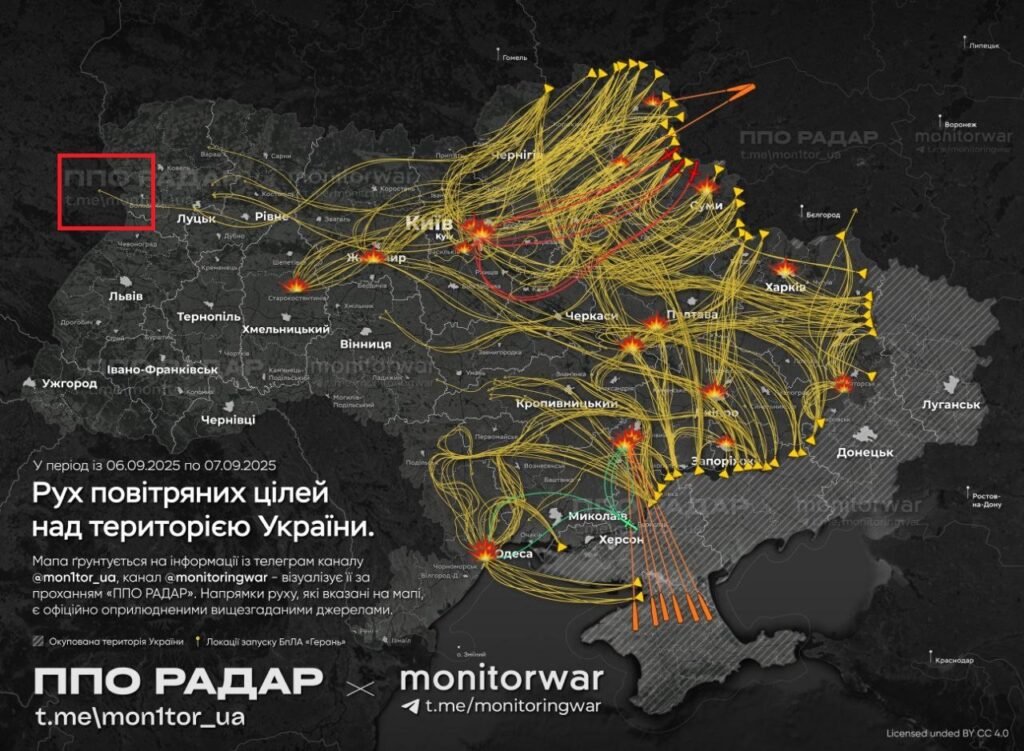

Ukrainian military news site Militarnyi reports that during the night of Russia’s largest drone attack on Ukraine, a Russian drone crossed into Poland and vanished. Polish forces tracked the incursion, but again failed to stop it.
During such attacks, Russian explosive drones occasionally leave Ukrainian airspace and cross into neighboring countries. So far, only Belarus—Moscow’s ally—has made any attempt to shoot them down. In every other documented case, including incidents in Moldova, Romania, Poland, and Lithuania, none have been intercepted.
Militarnyi says that overnight on 6–7 September, Russia launched its most extensive combined drone and missile attack on Ukrainian territory. During that assault, at around 01:13, one of the Russian drones crossed into Polish airspace from northwestern Ukraine’s Volyn Oblast. The drone continued flying on a course toward the city of Zamość in Poland’s Lublin Voivodeship.
According to Militarnyi, which cited analysis from Ukrainian monitoring groups and official statements from Poland’s Operational Command of the Armed Forces, the drone was detected inside Polish territory. It remained there for at least thirty minutes before disappearing from tracking channels. There was no confirmation about where it crashed or whether it continued flying.
At around 01:41, several monitoring channels reported activity from Polish fighter jets in the same area where the drone had been observed.
By 02:06, the Operational Command of the Polish Armed Forces posted a statement on X confirming that Polish and allied aircraft were operating in national airspace.
The statement added that air defense and radar reconnaissance systems were at “the highest level of readiness.” It stressed the “preventive” nature of the actions and claimed the goal was to secure Polish airspace and protect citizens, especially near the border.
Later that night, the Polish military reiterated that it was “monitoring the current situation” and that its forces remained ready to respond immediately.
By around 05:00, Polish and allied aircraft completed their operations over Poland. The military said the actions ended due to the cessation of Russian airstrikes on Ukraine. No additional updates about the drone’s location or status were released. The last known reports placed it several dozen kilometers inside Polish airspace, where it had remained for over half an hour.
Polish authorities did not report any recovery of debris. There were no indications that the drone was shot down or forced to land. The incident ended without confirmation of what happened to the drone after it disappeared from radars.
This is not the first time a Russian drone violated Polish airspace and continued flying for an extended time. In late August, a Russian Shahed drone flew over Poland for approximately two and a half hours before crashing. Militarnyi reported that the straight-line distance from the entry point to the crash site in the village of Osiny was around 200 km.
At the beginning of September, another drone incident occurred. A Gerbera decoy drone fell in a field near the village of Majdan Sielce in Lublin Voivodeship, about 50 km from the Ukrainian border. Polish officials denied that it had “any military characteristics,” whatever it means.